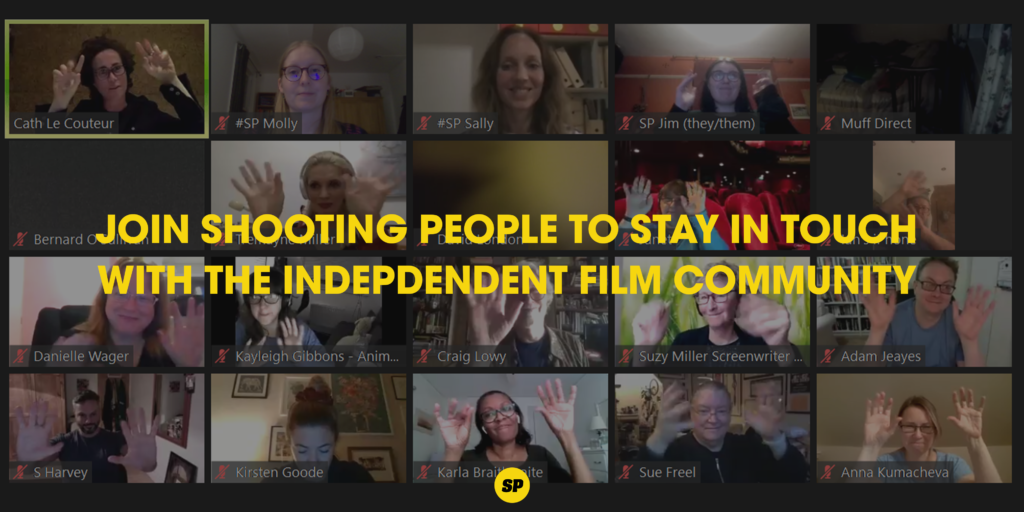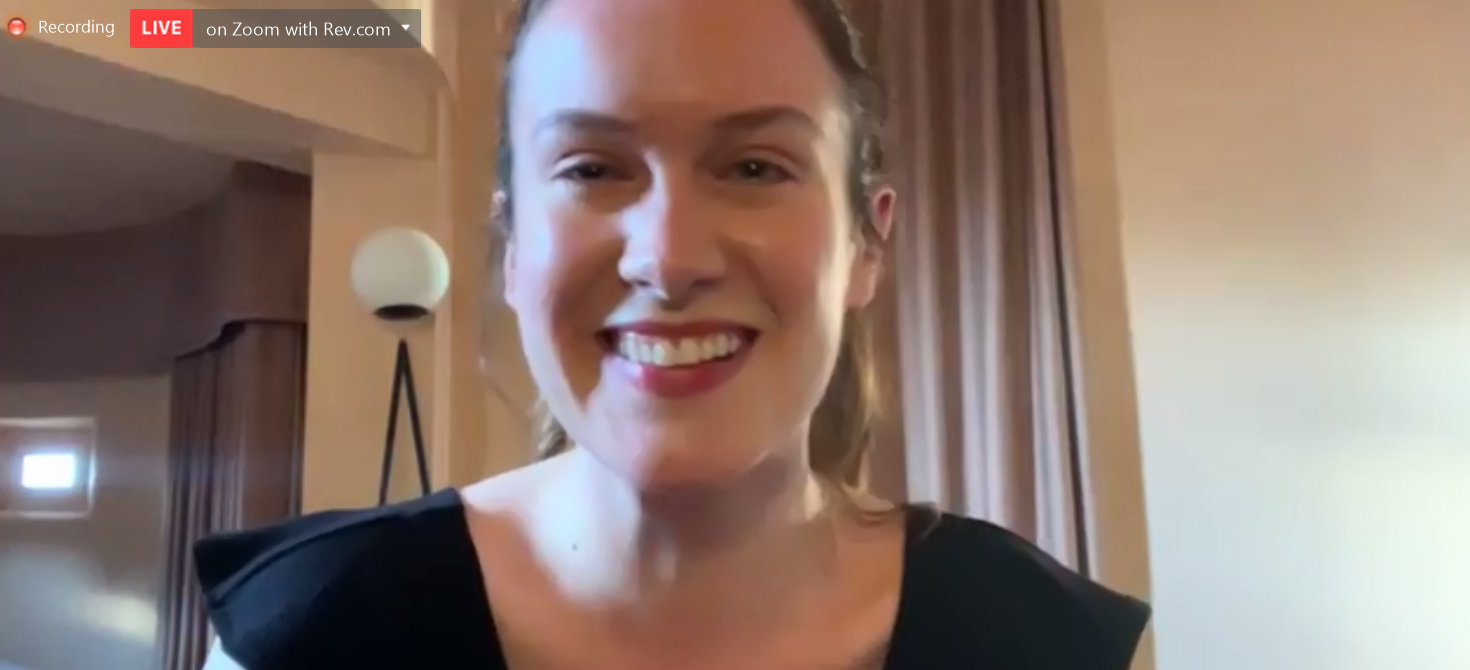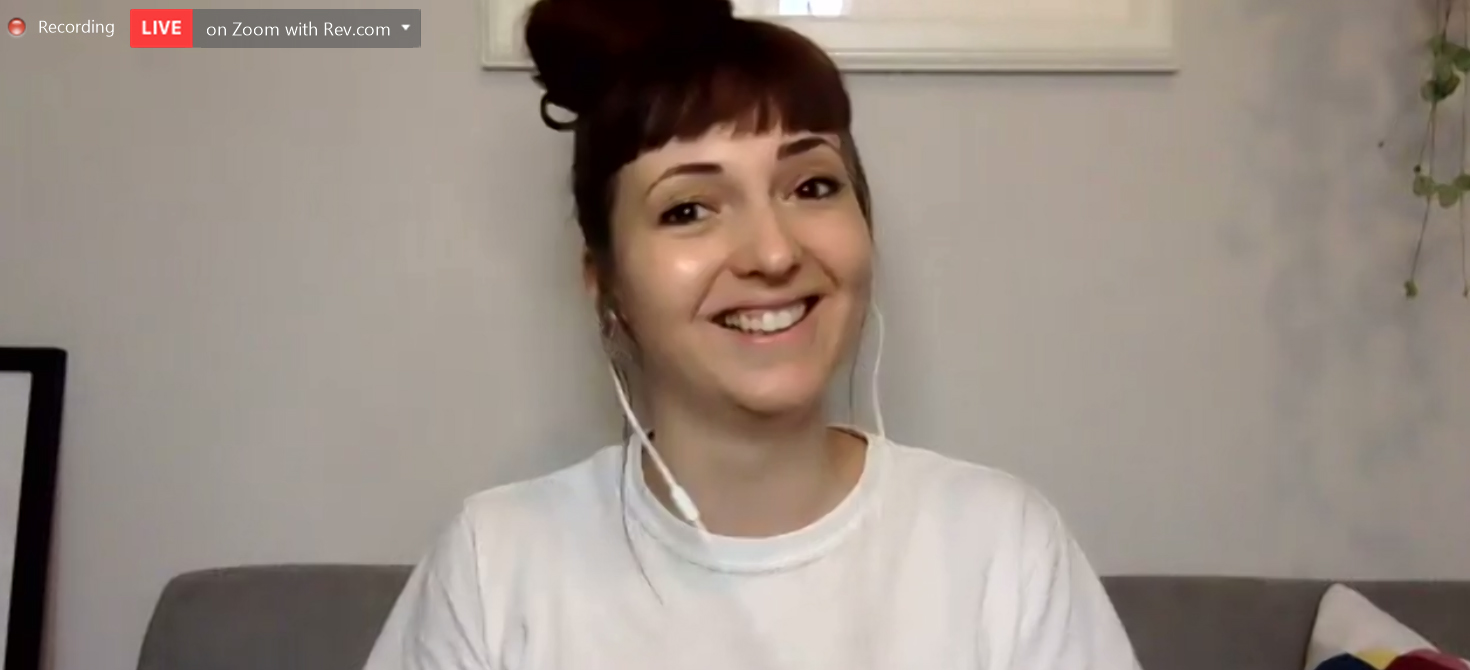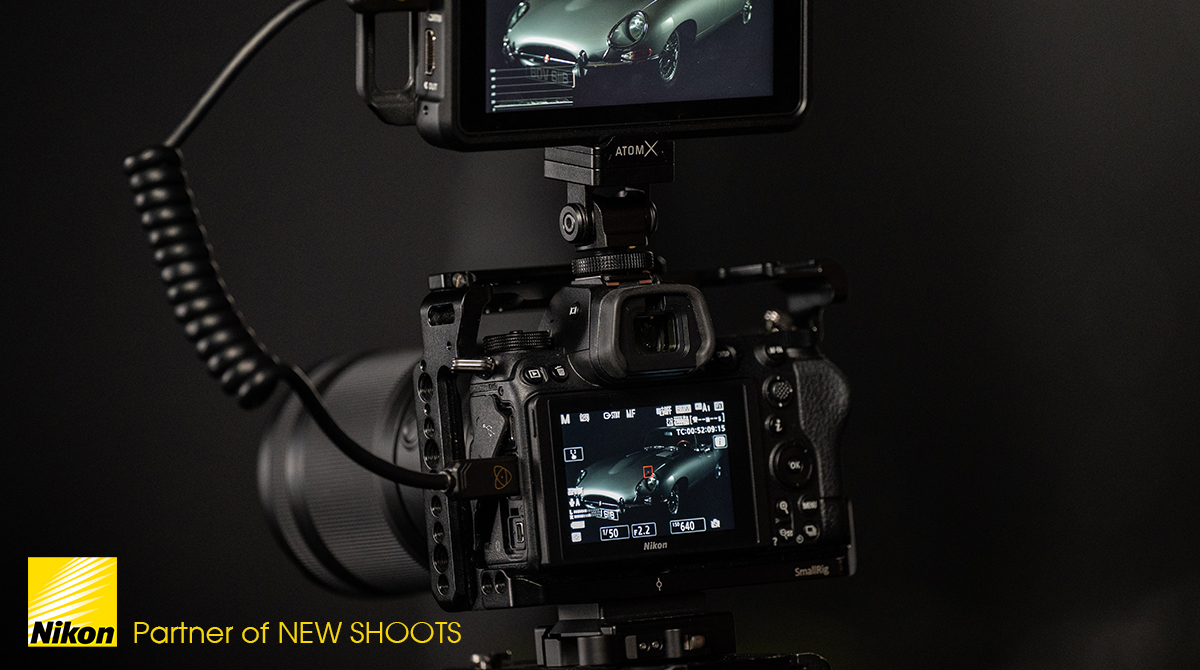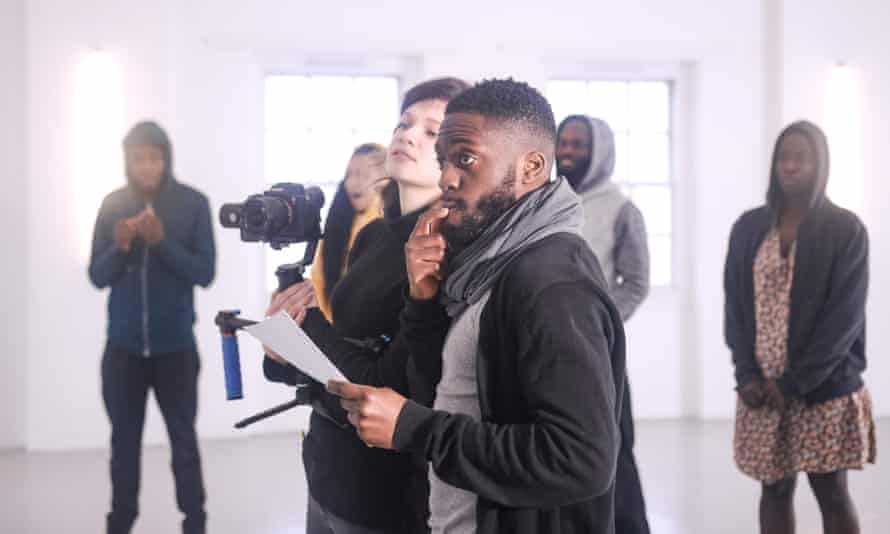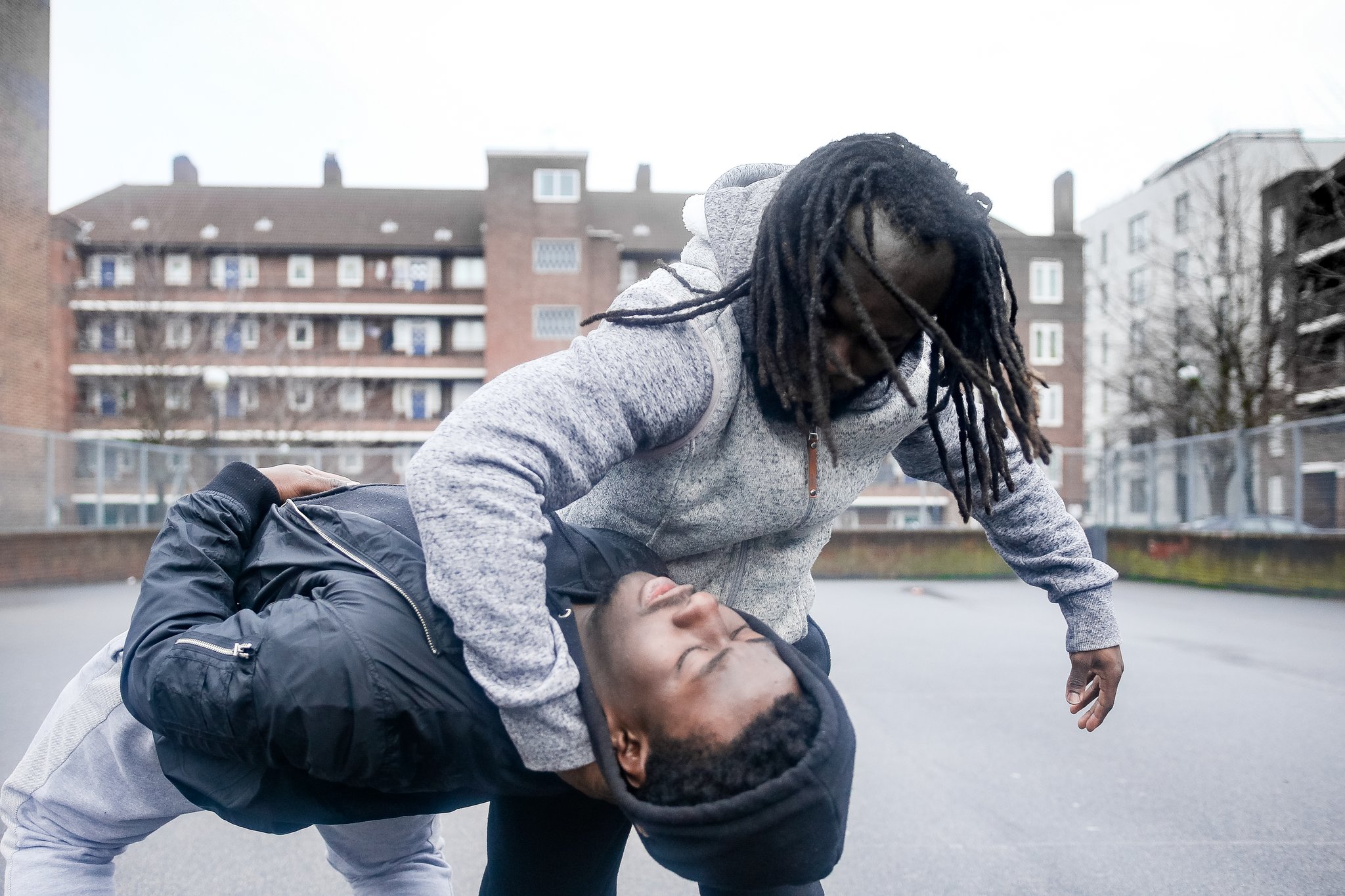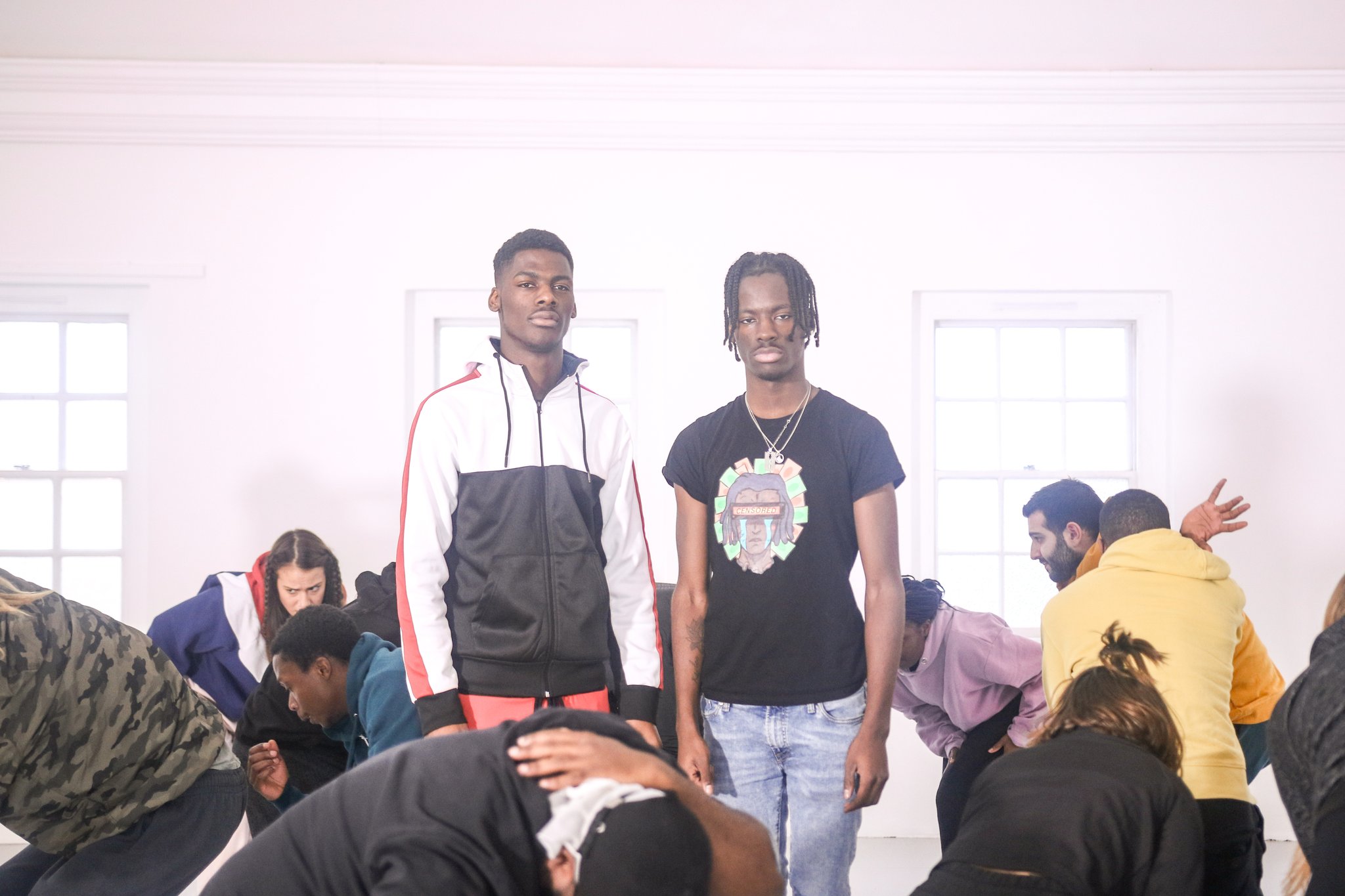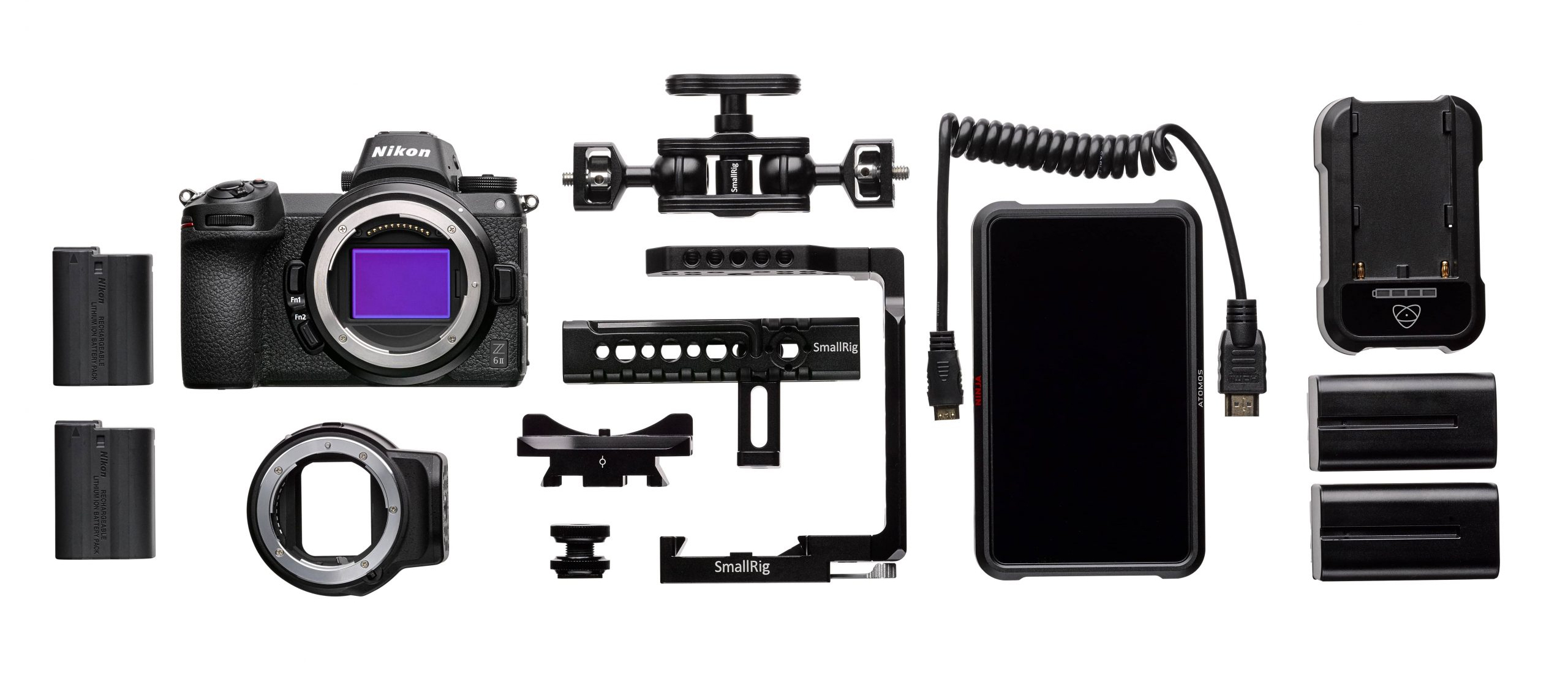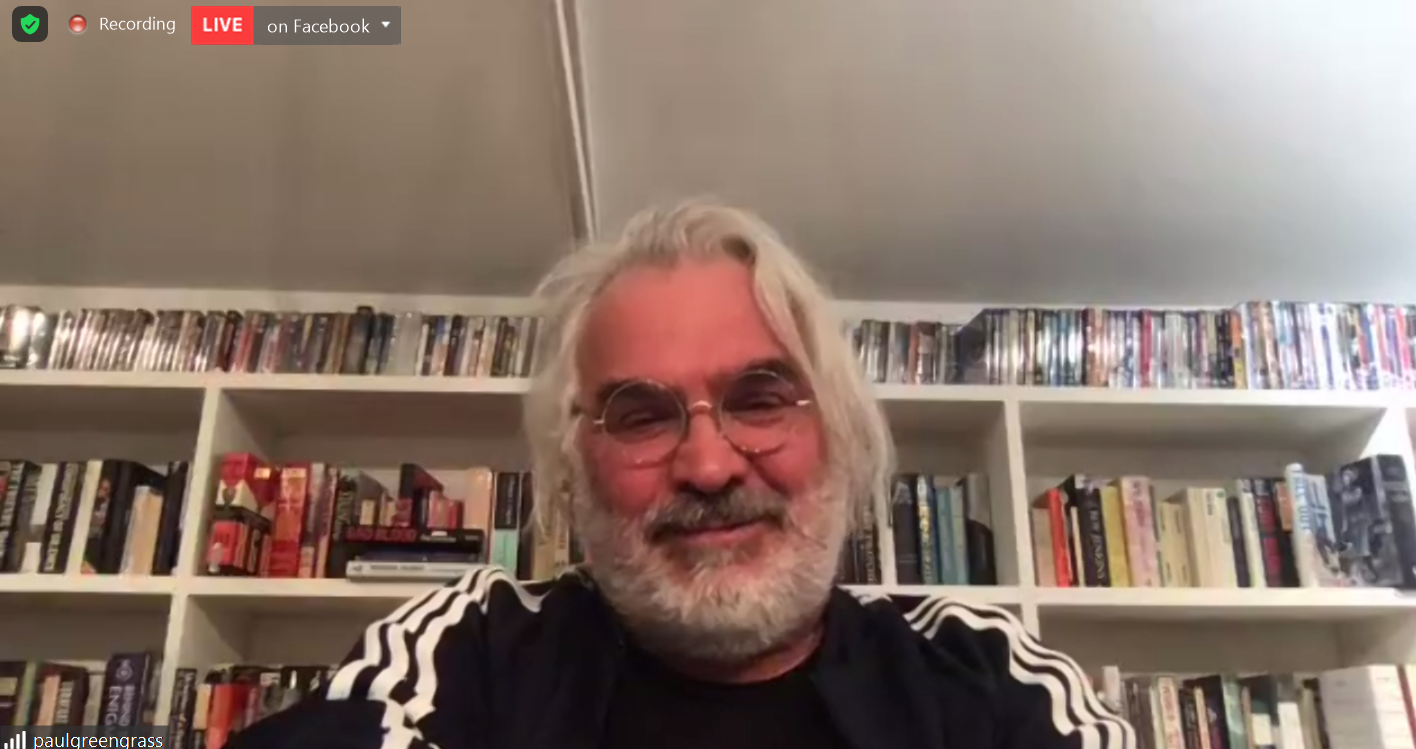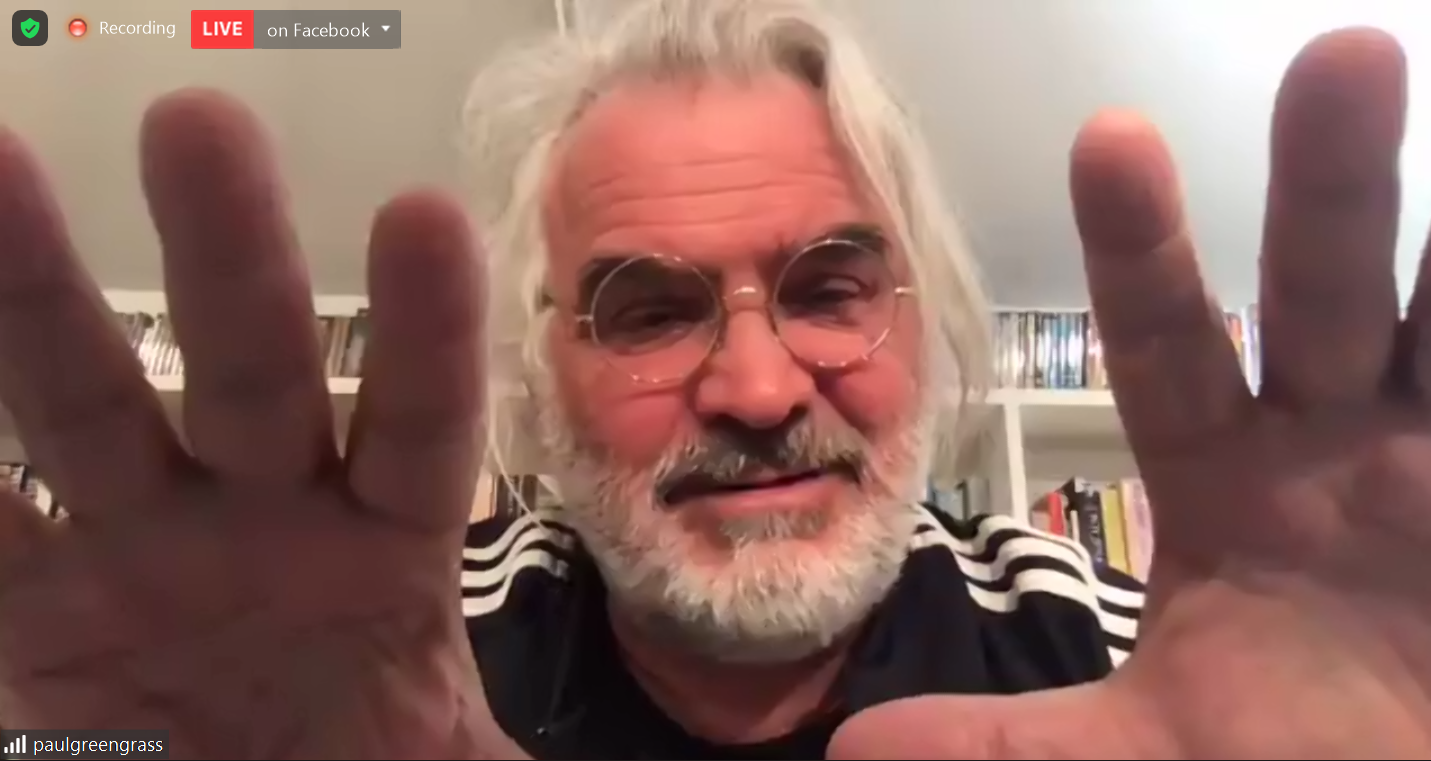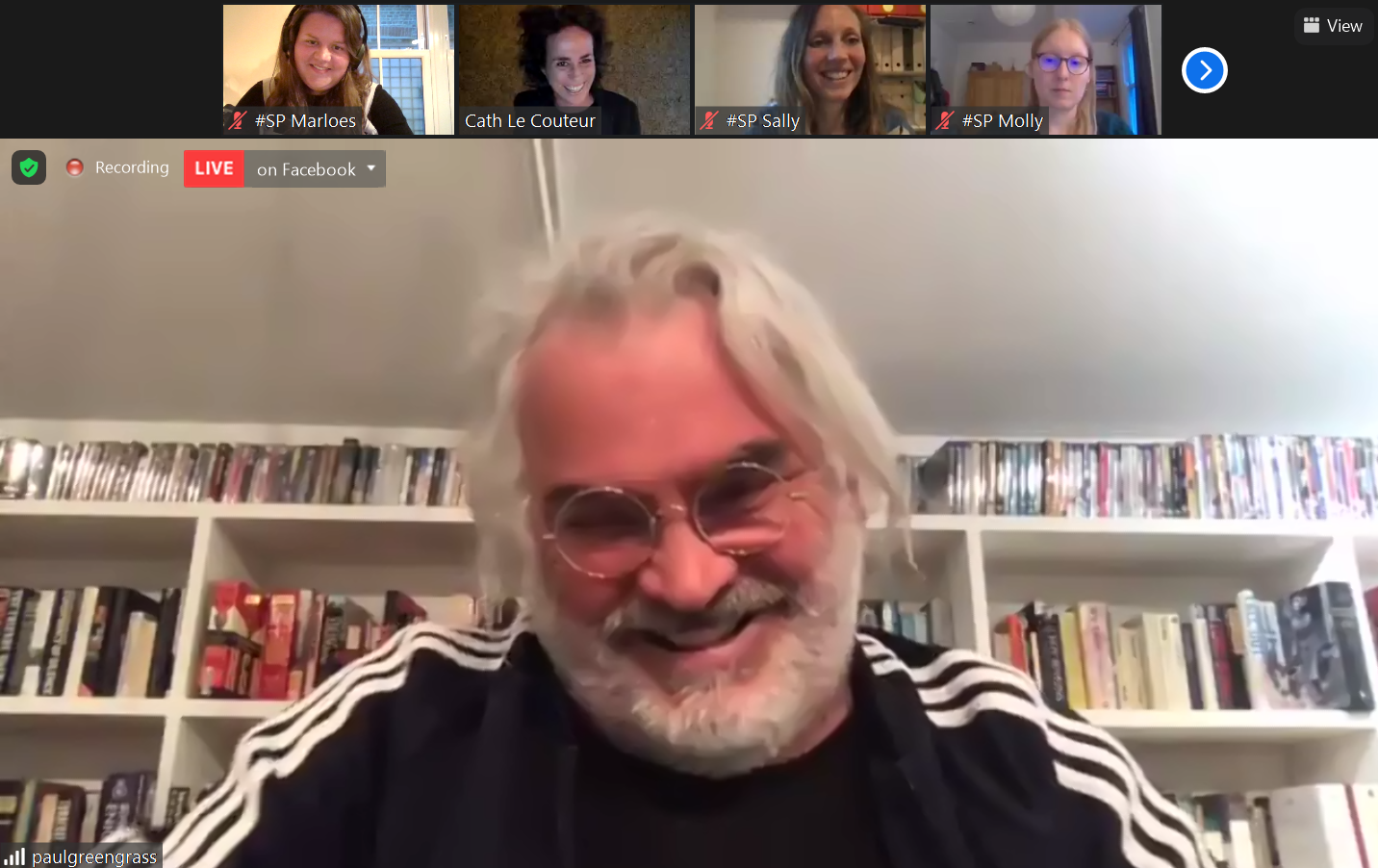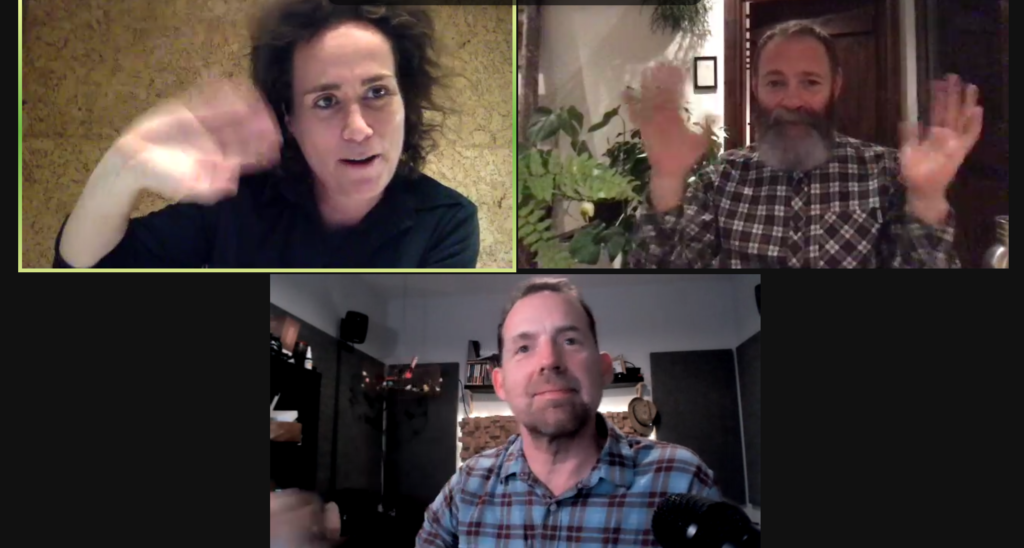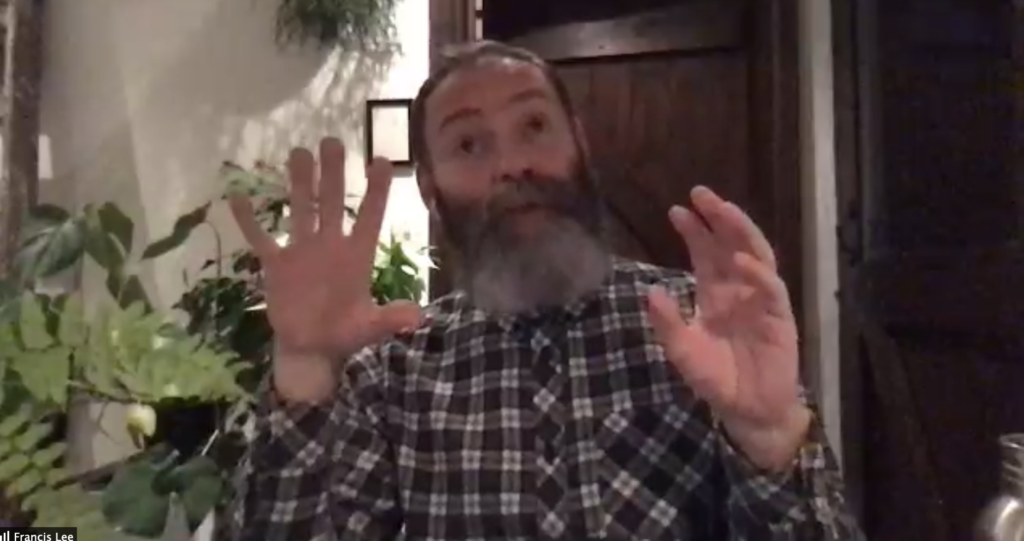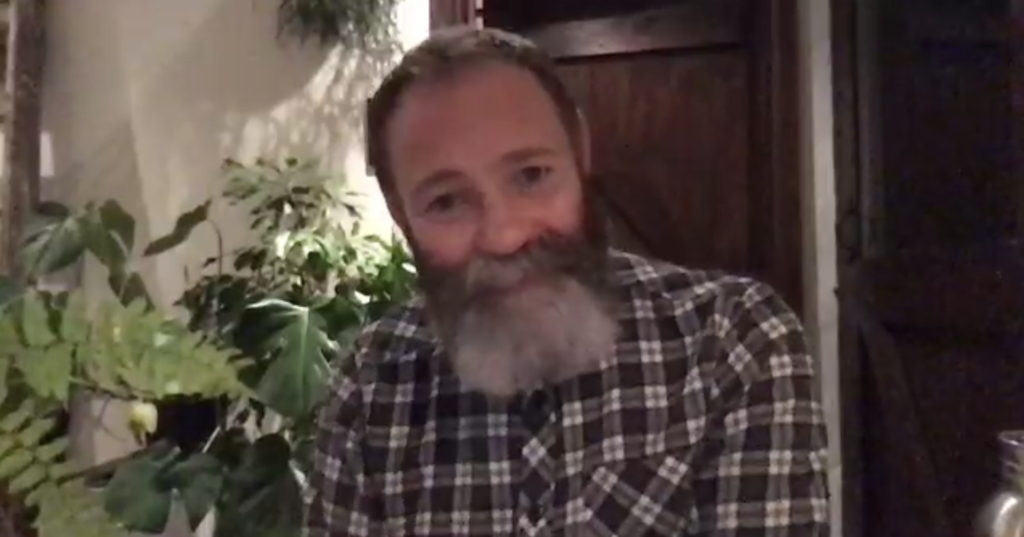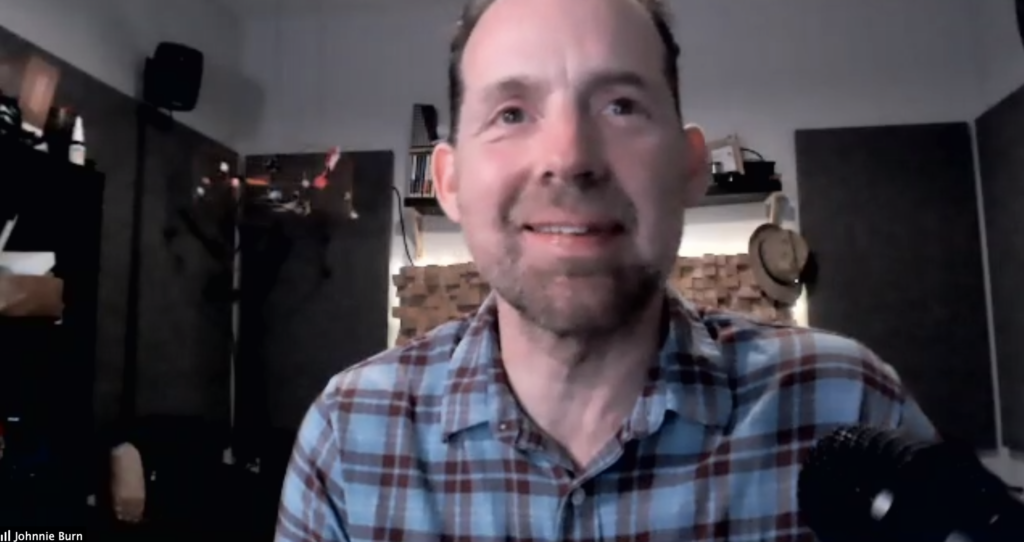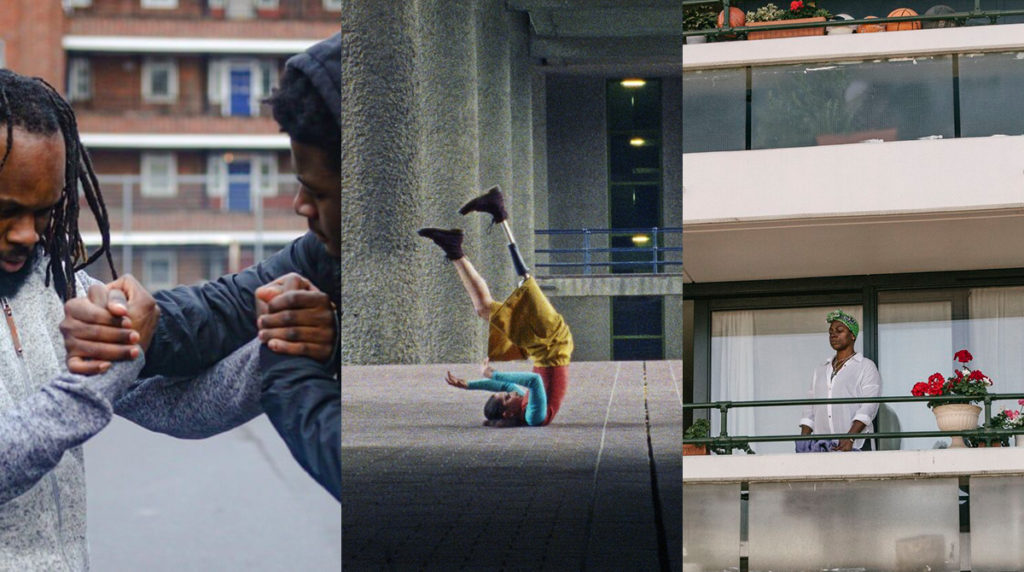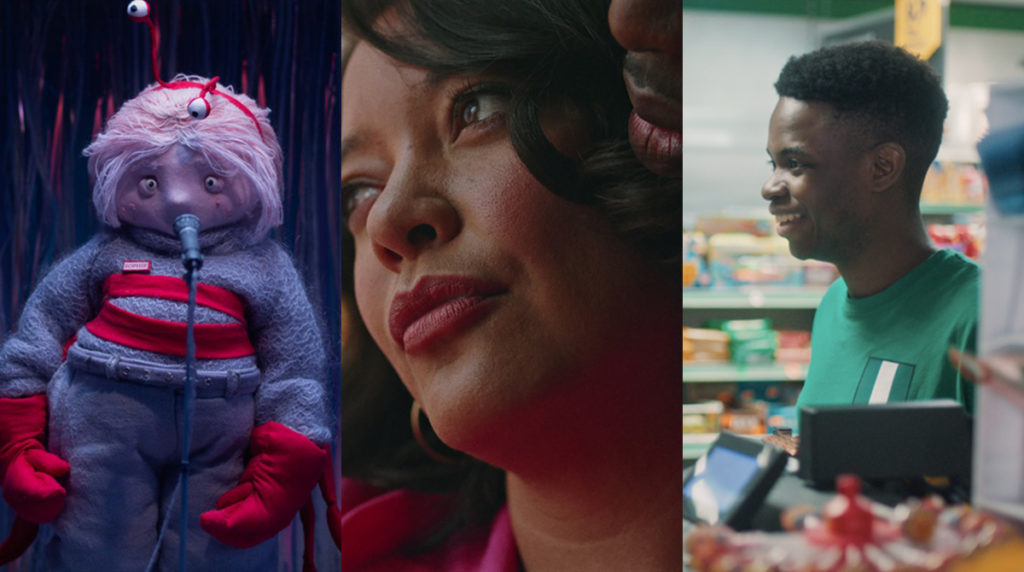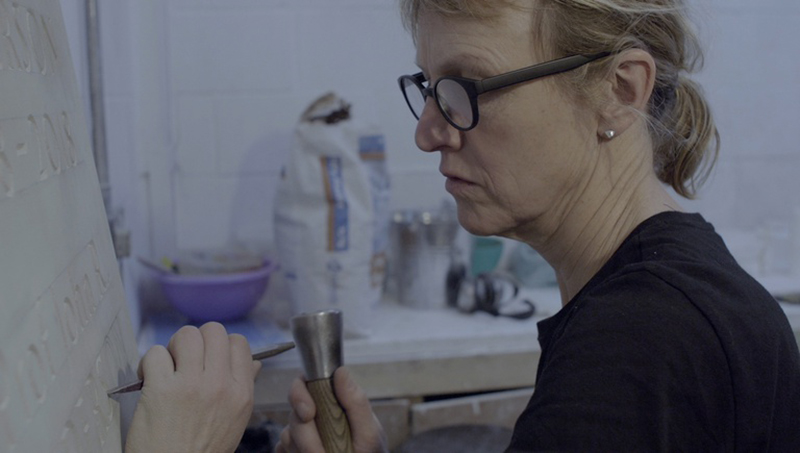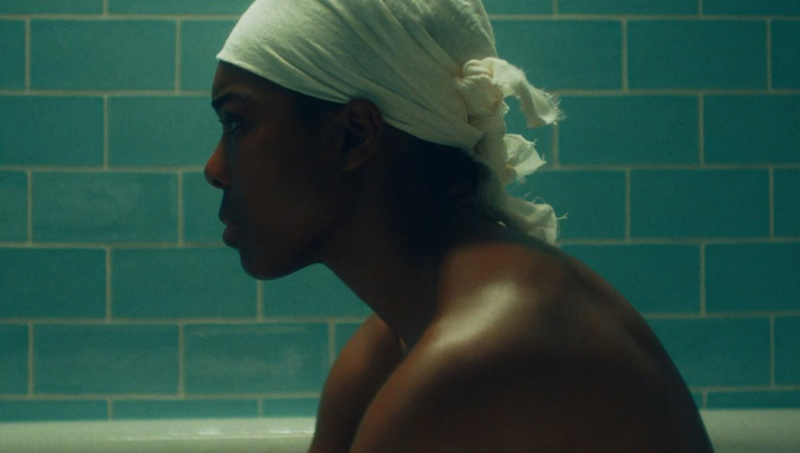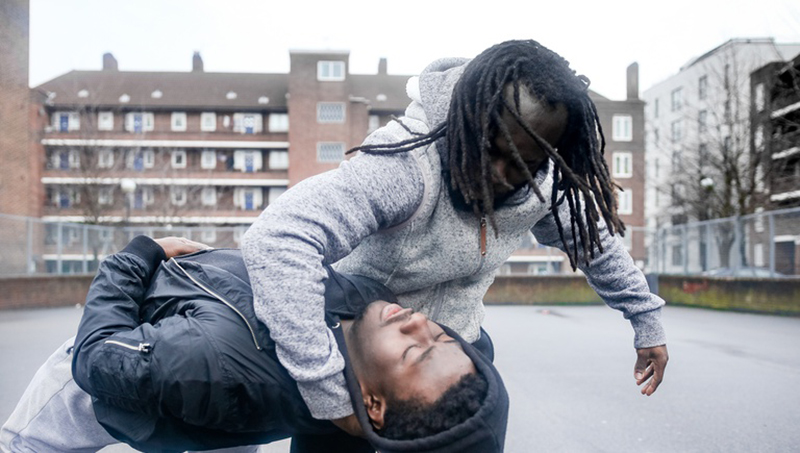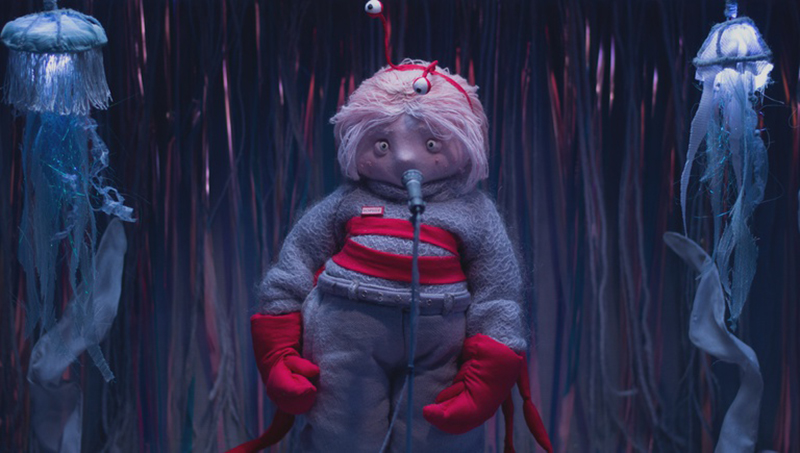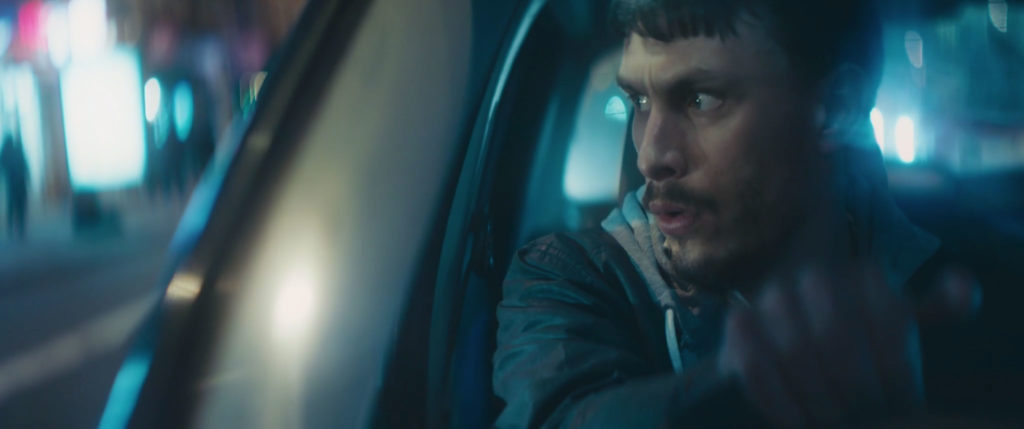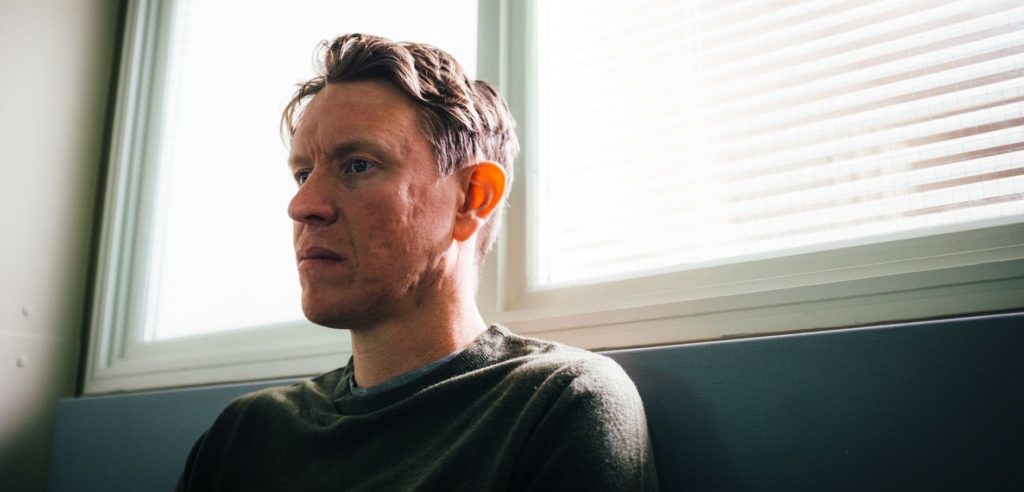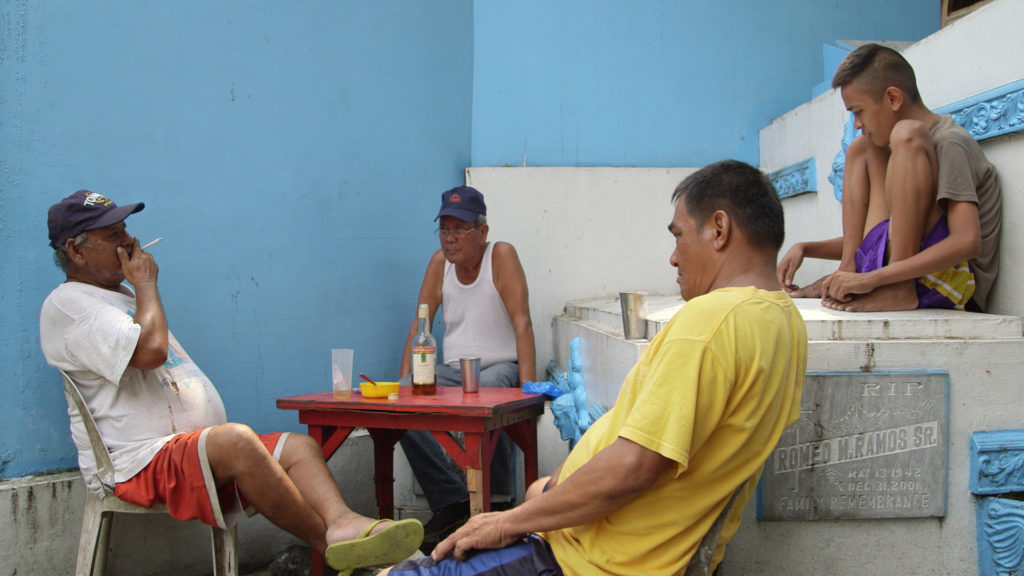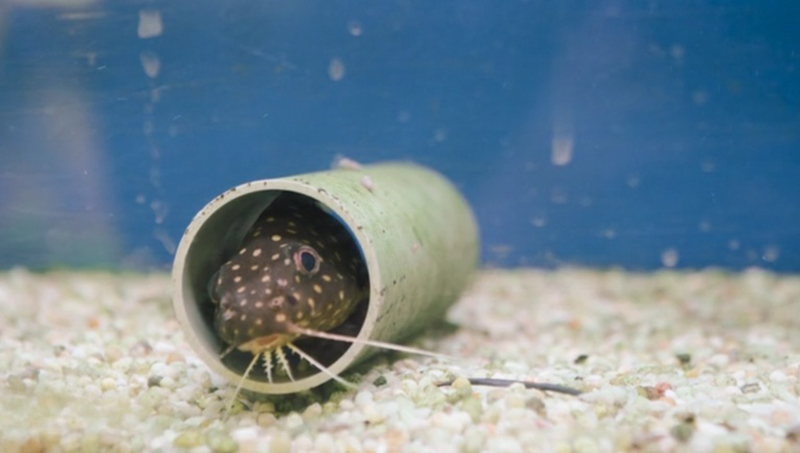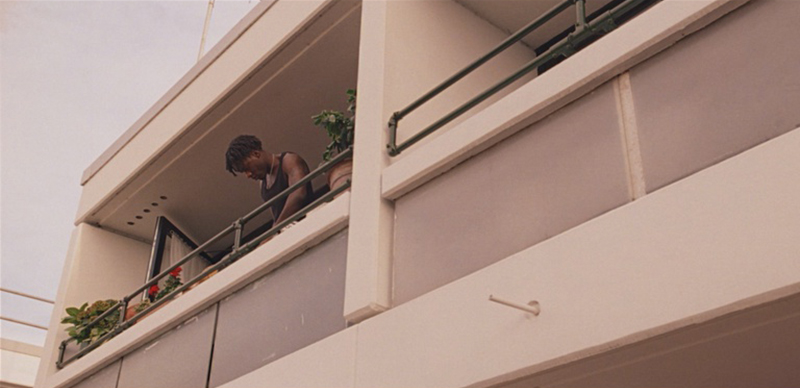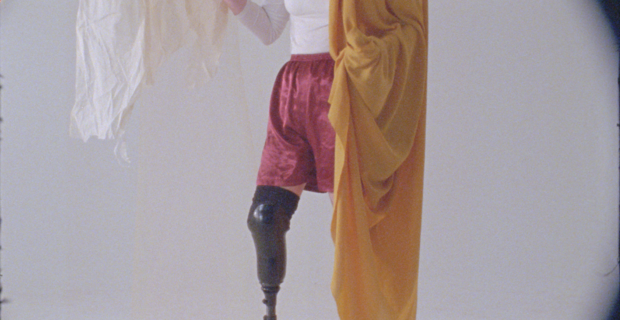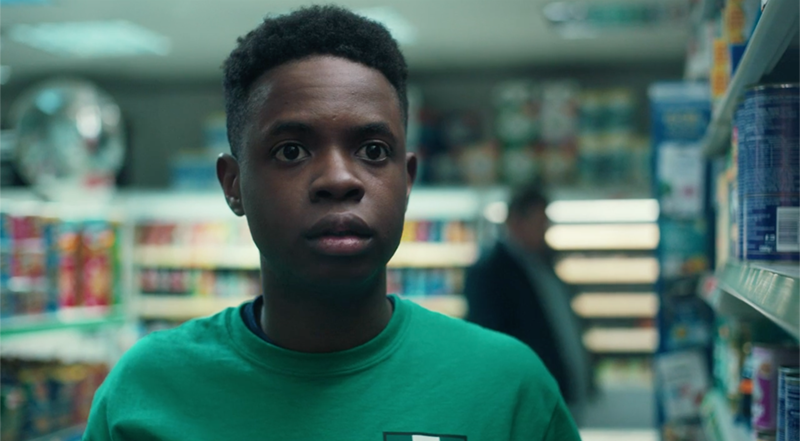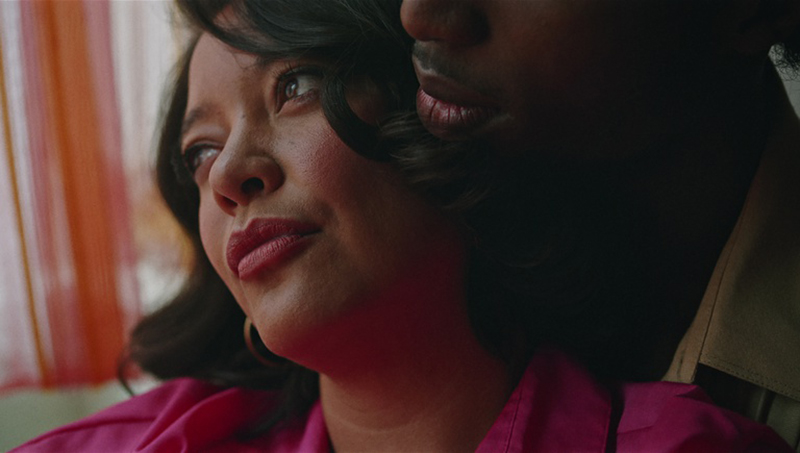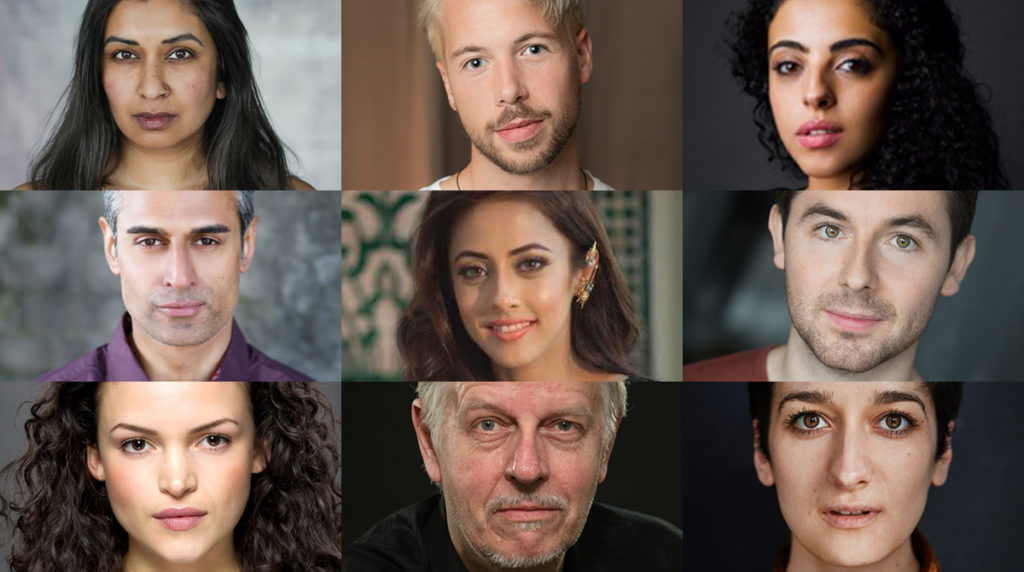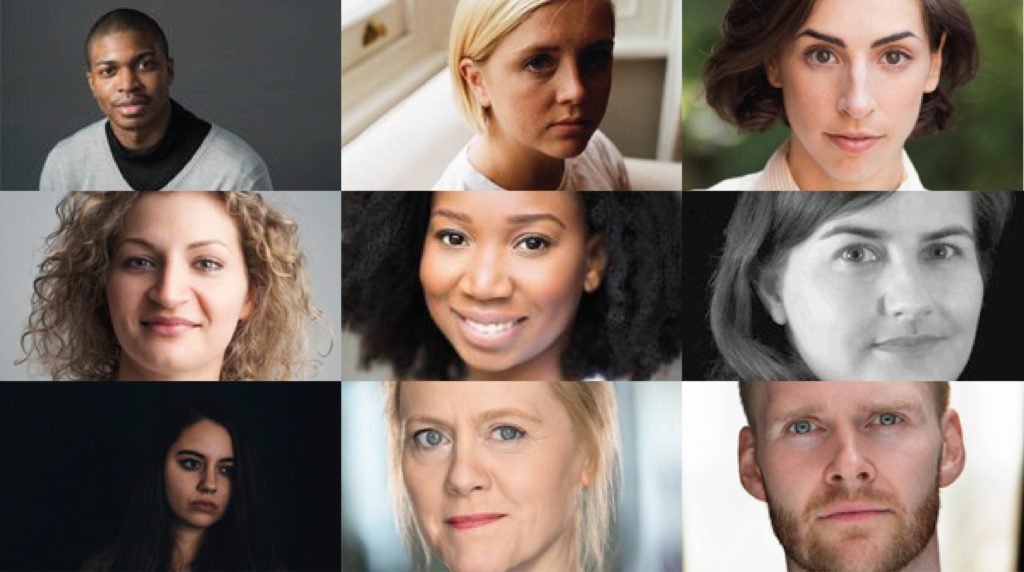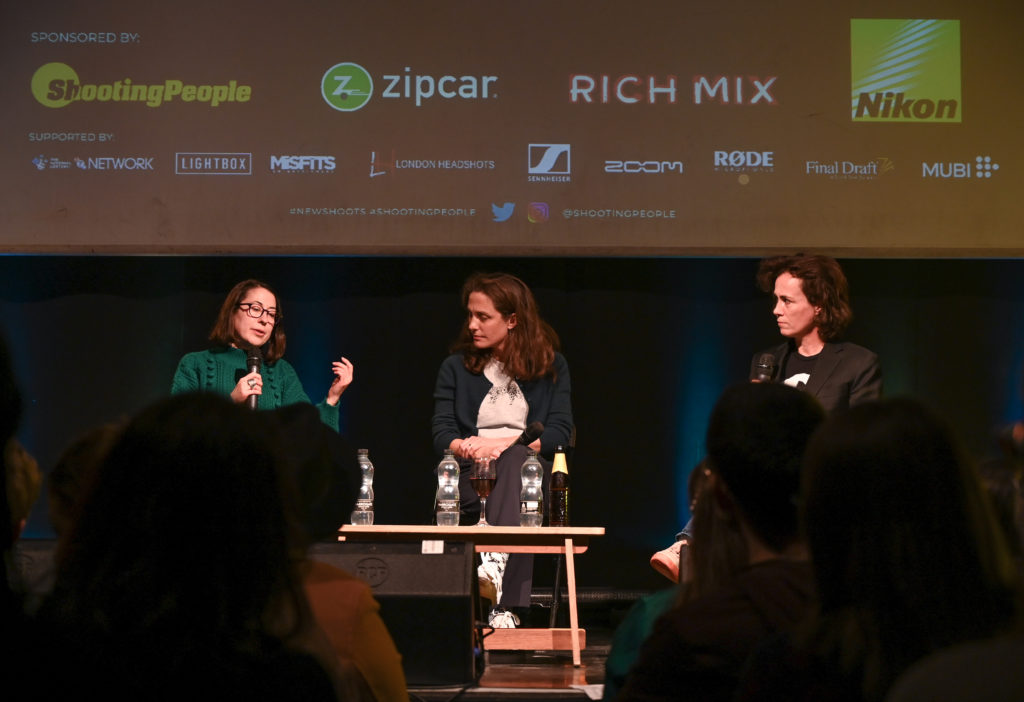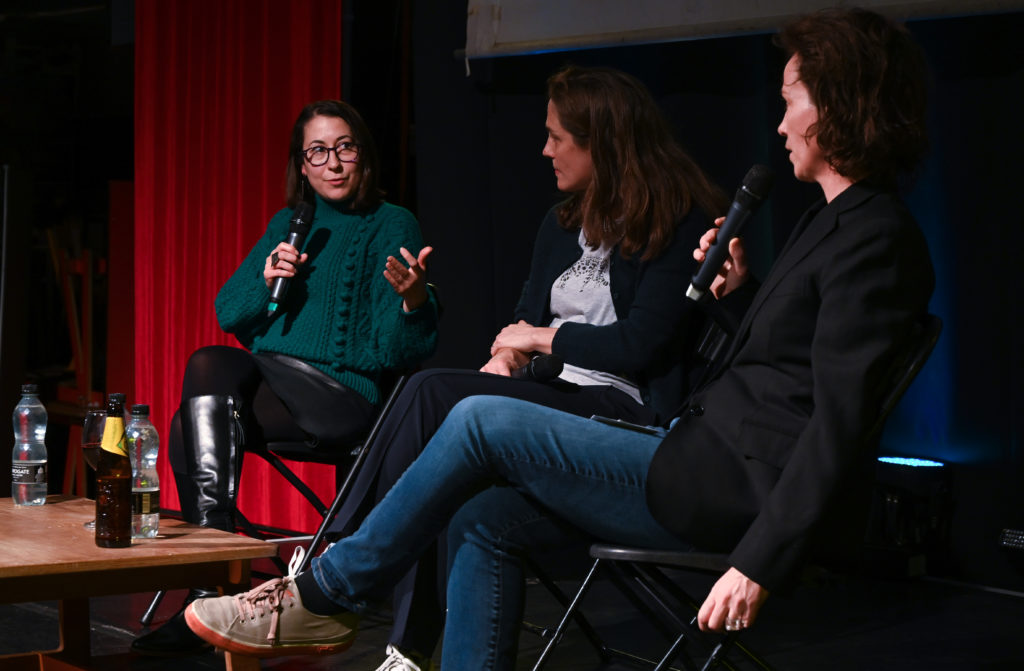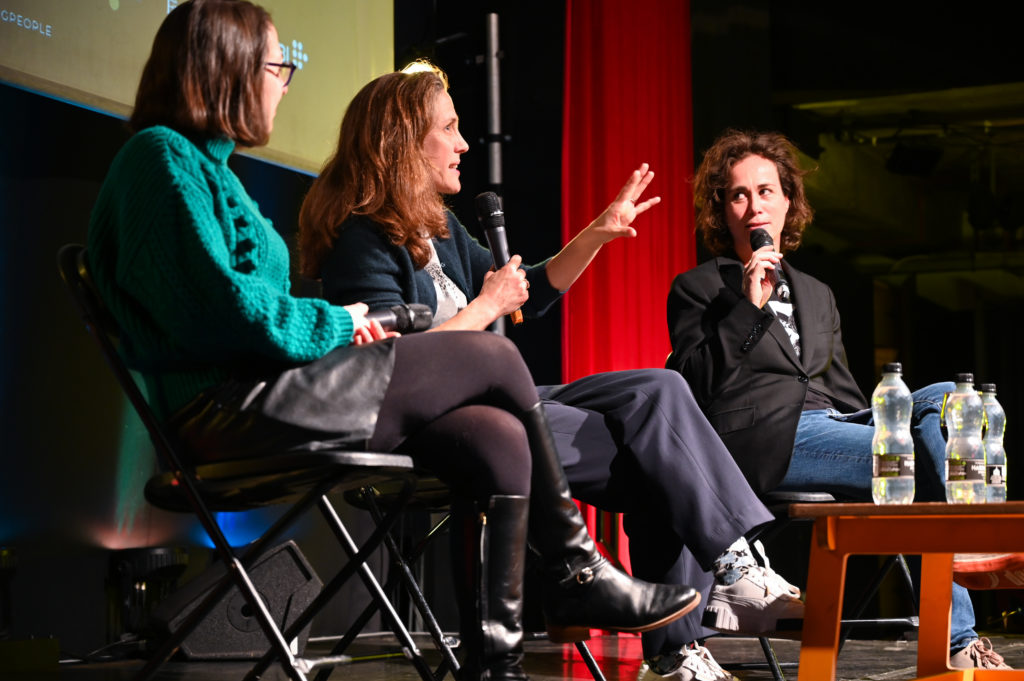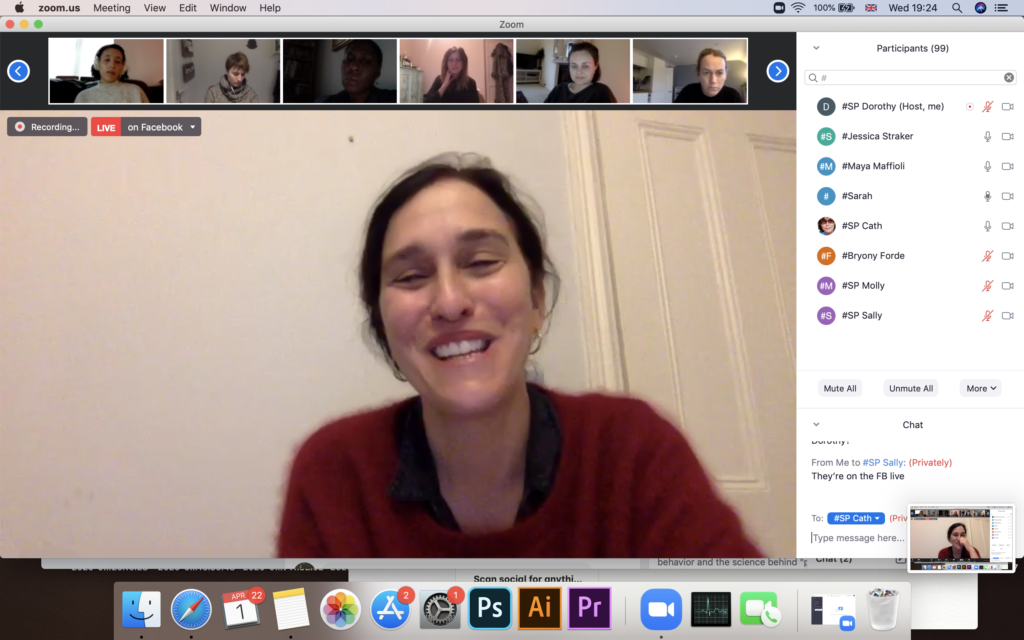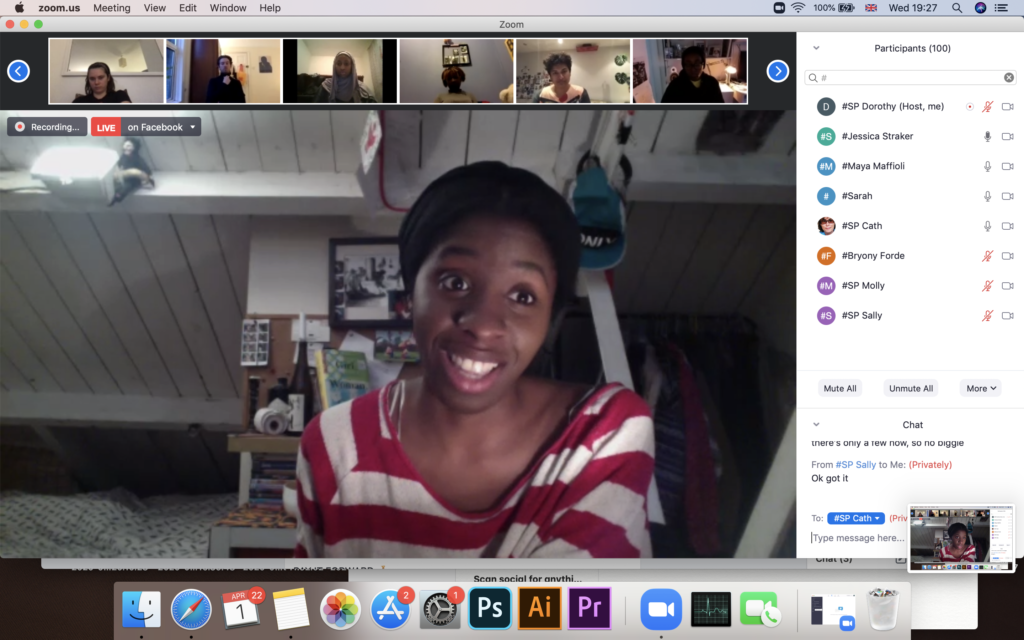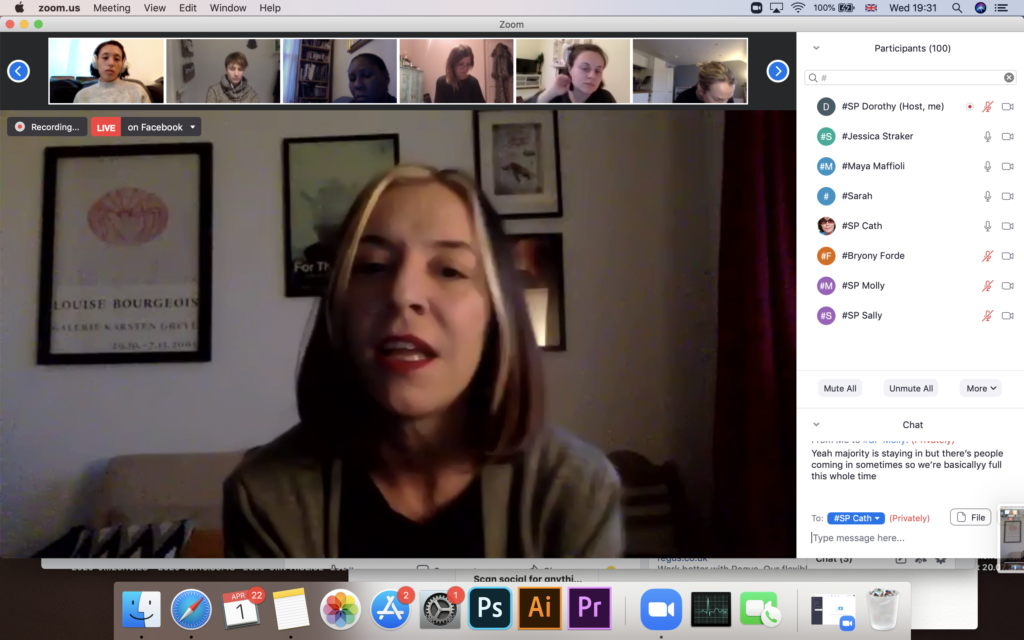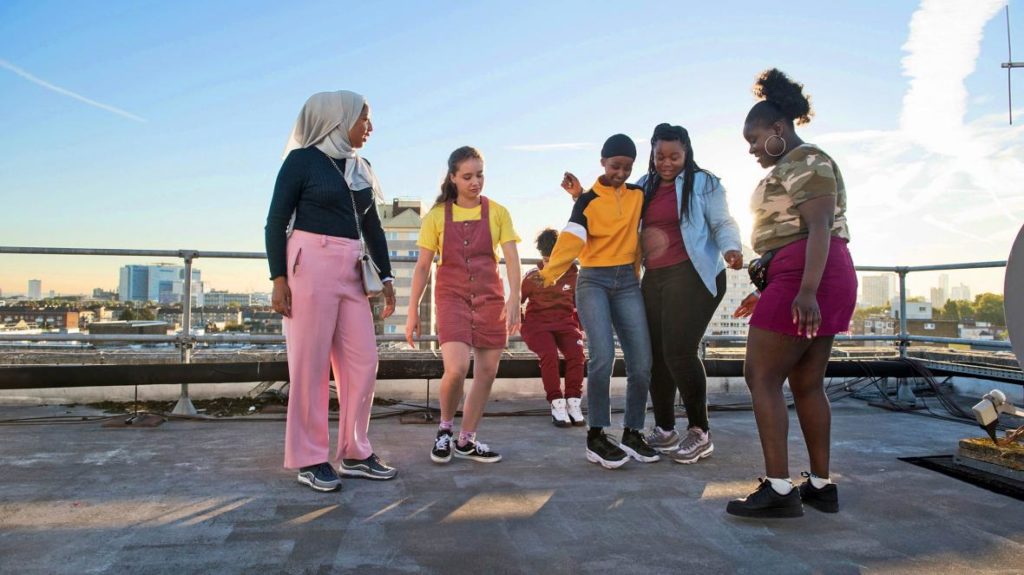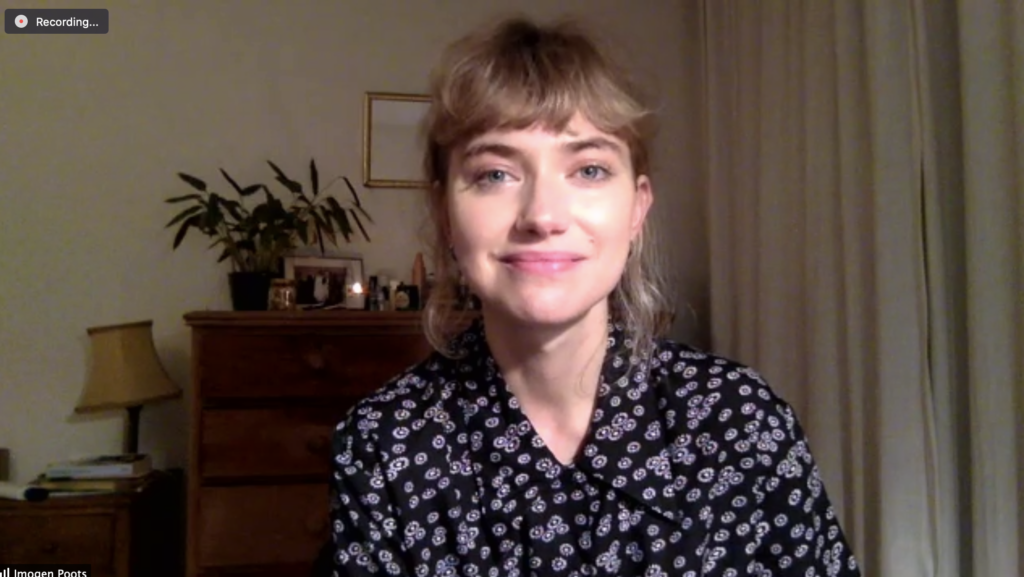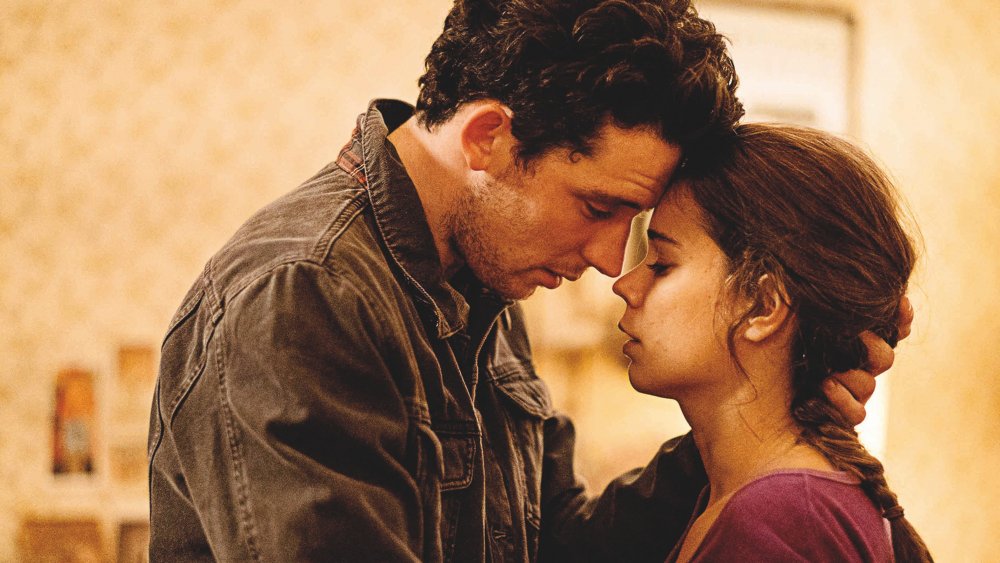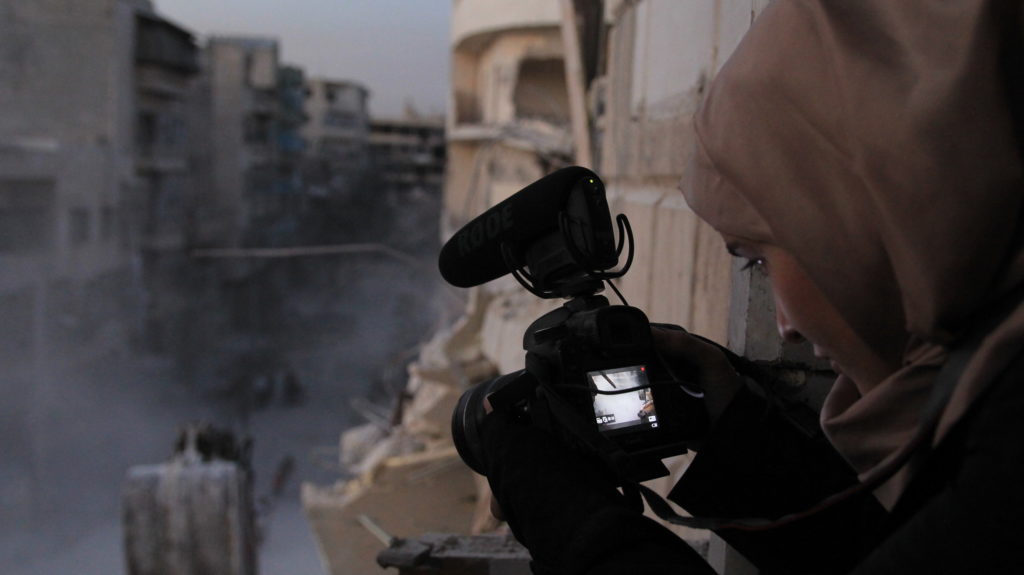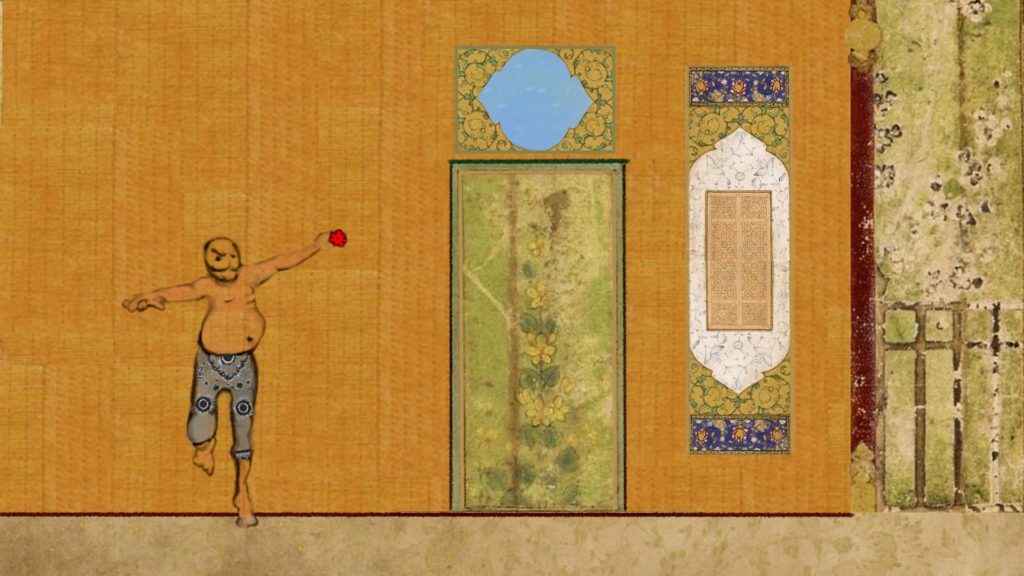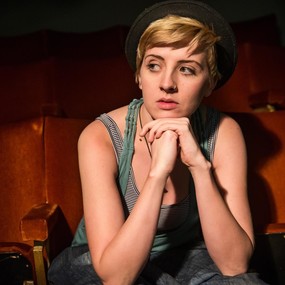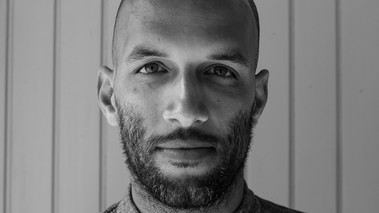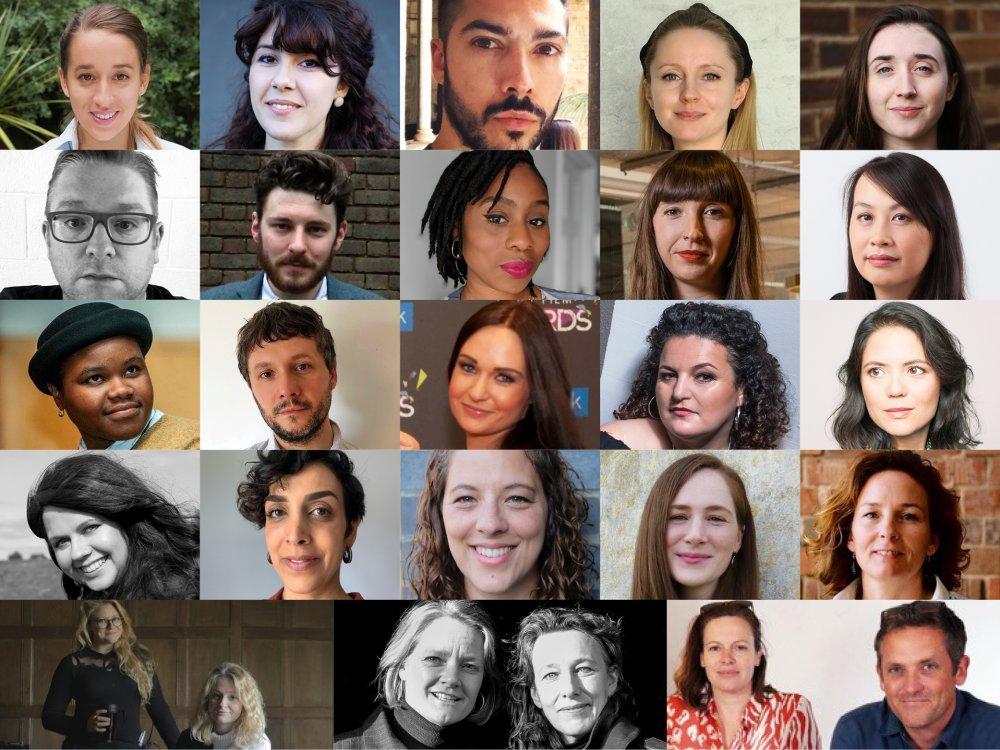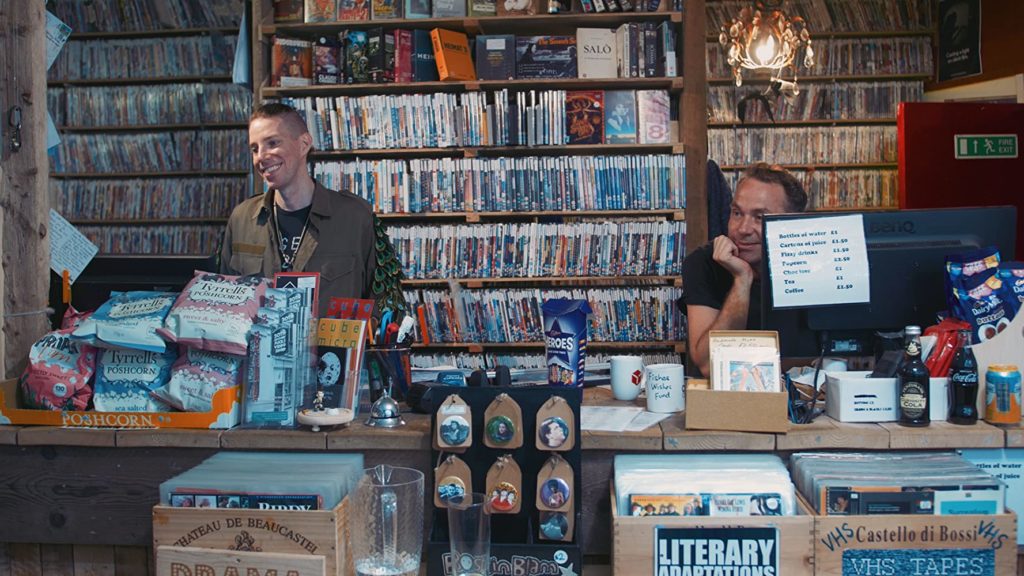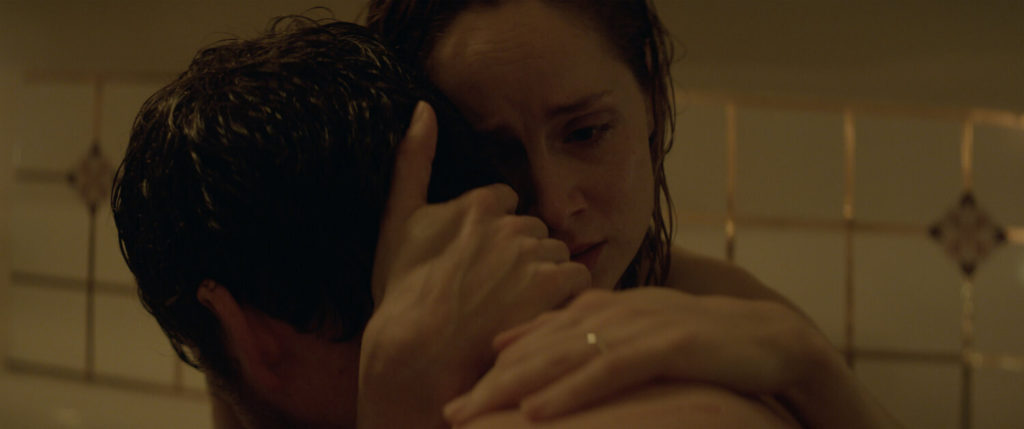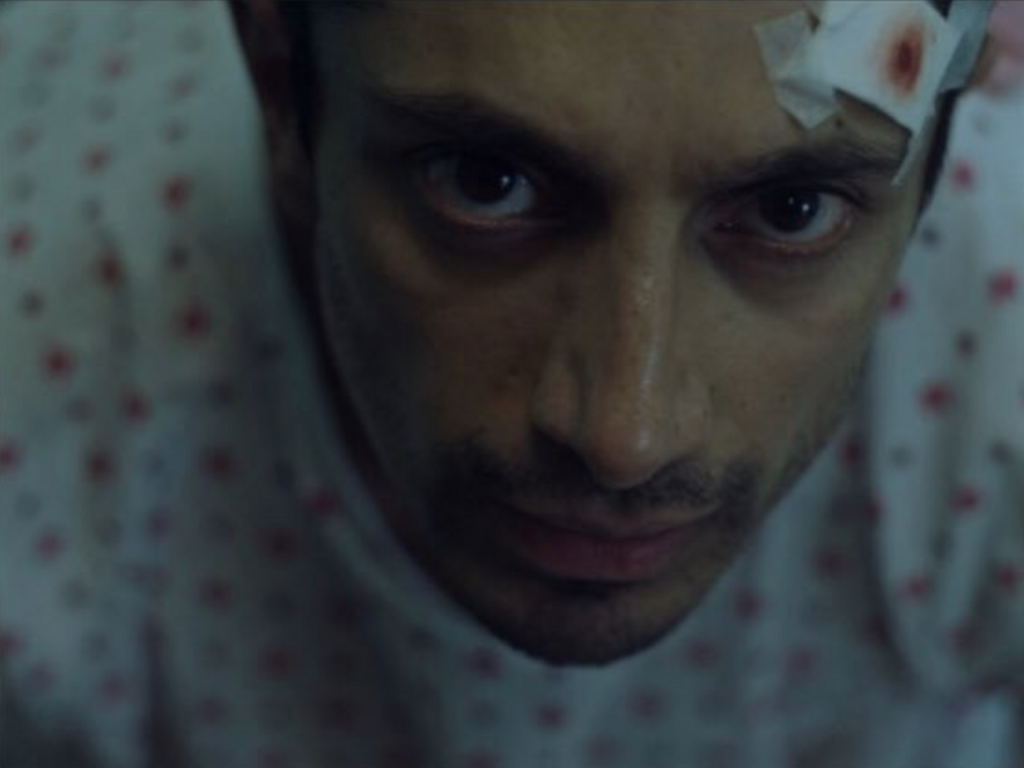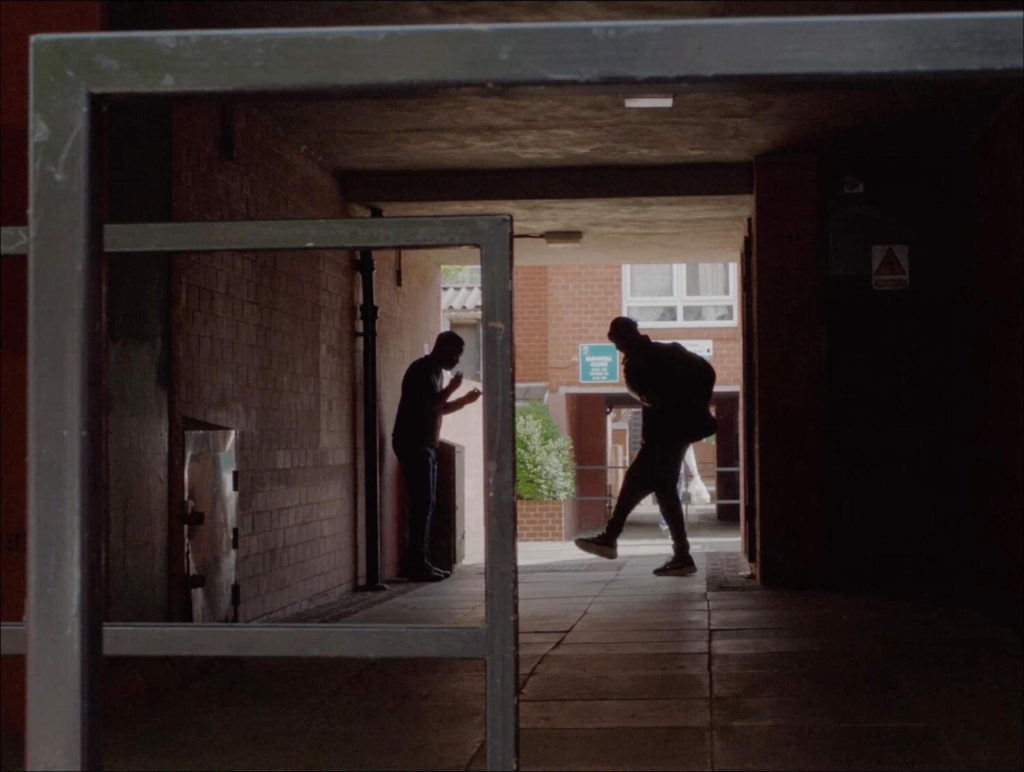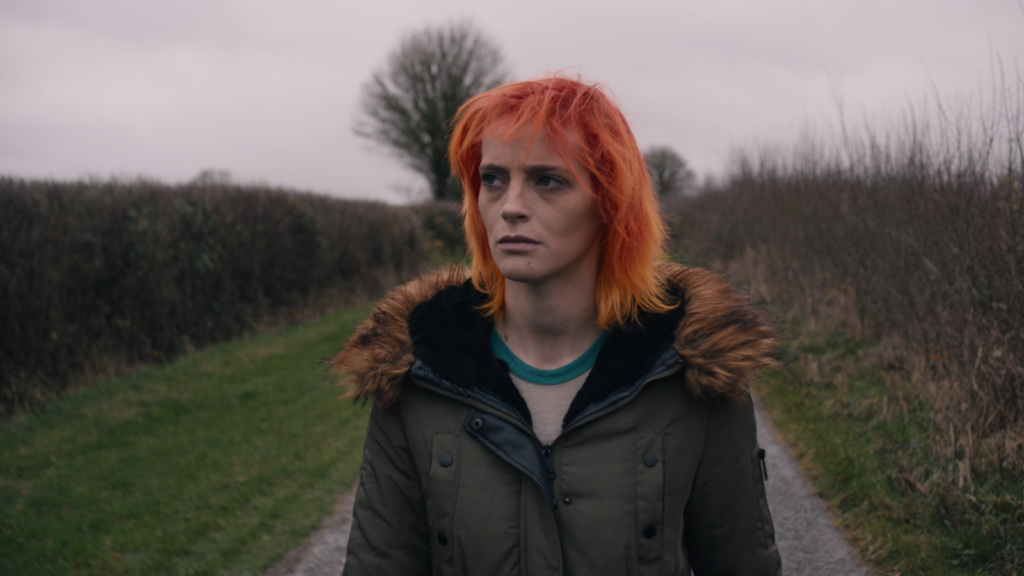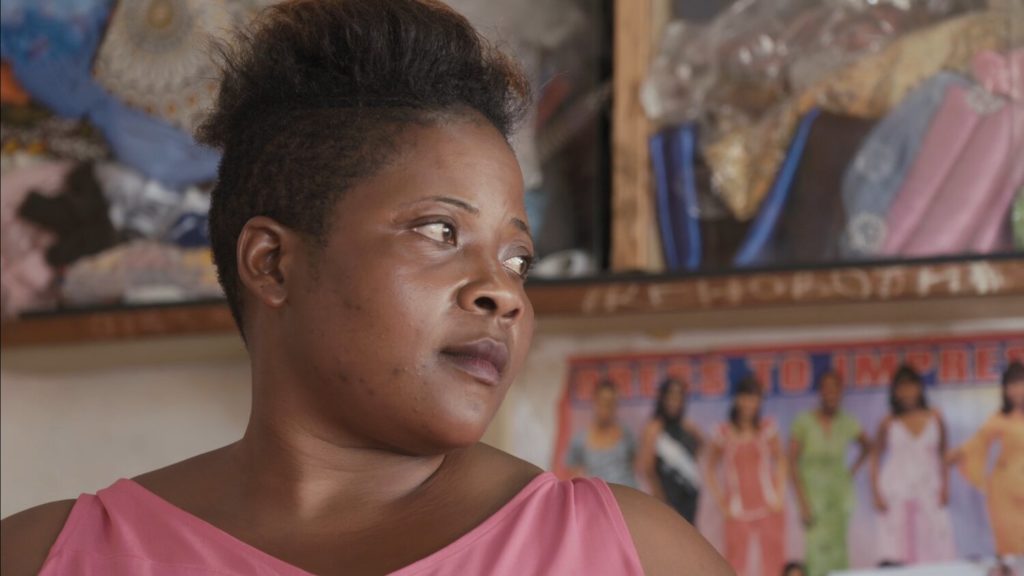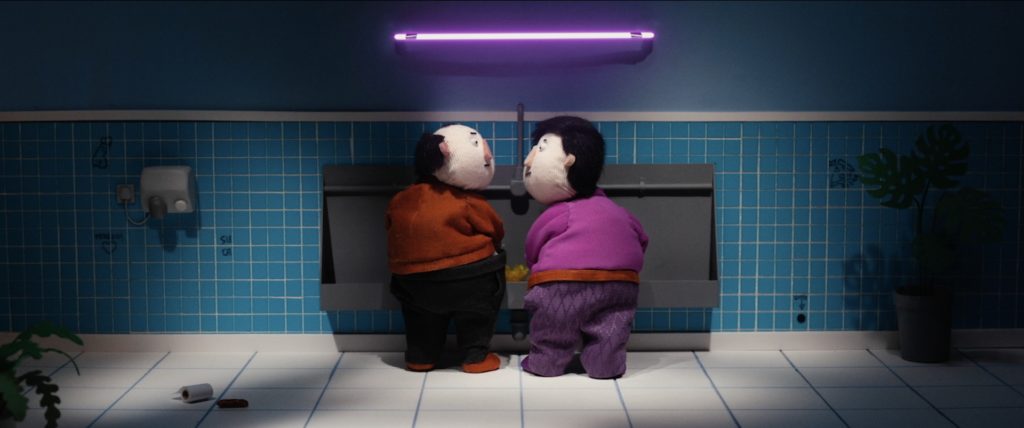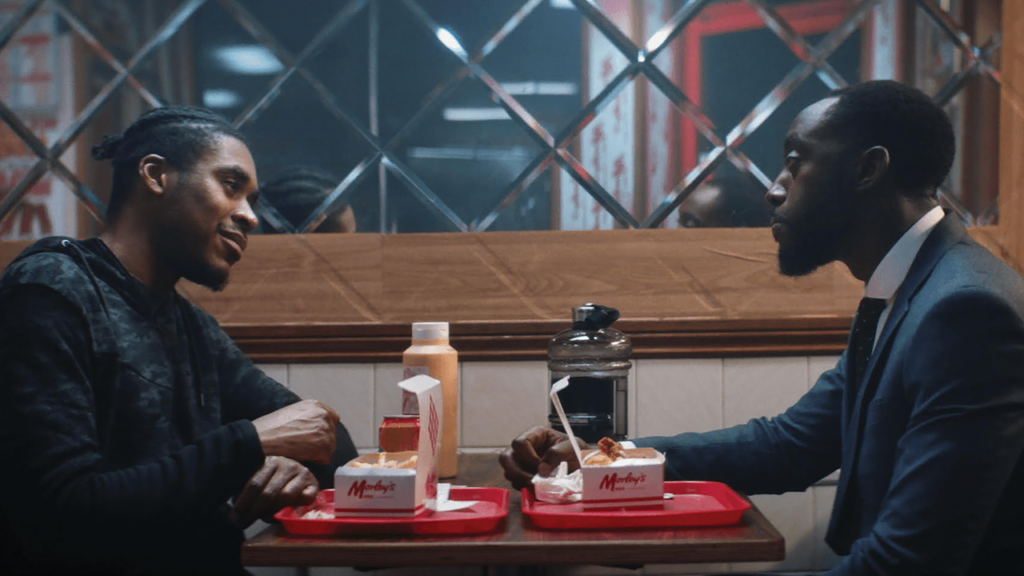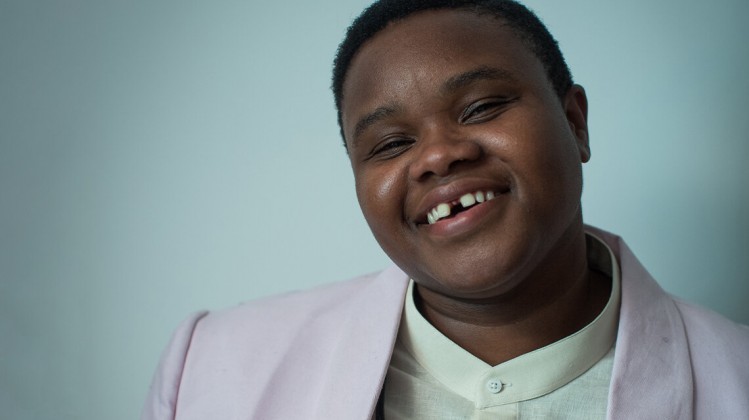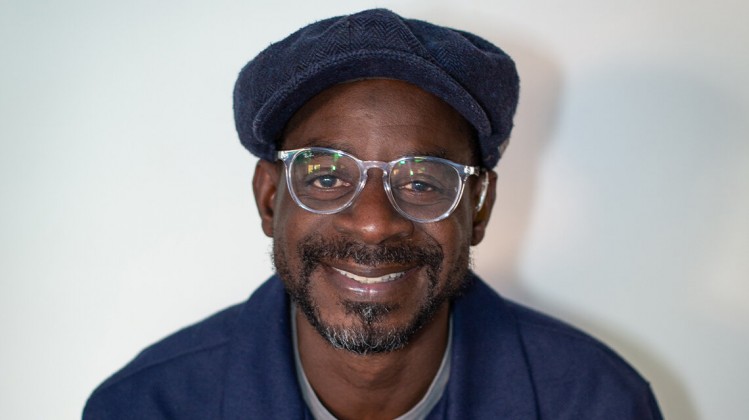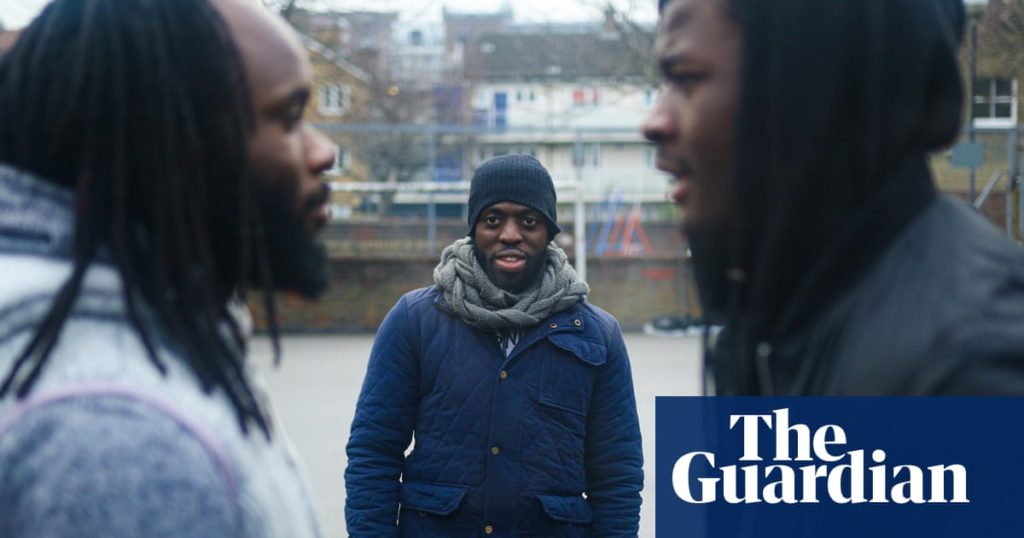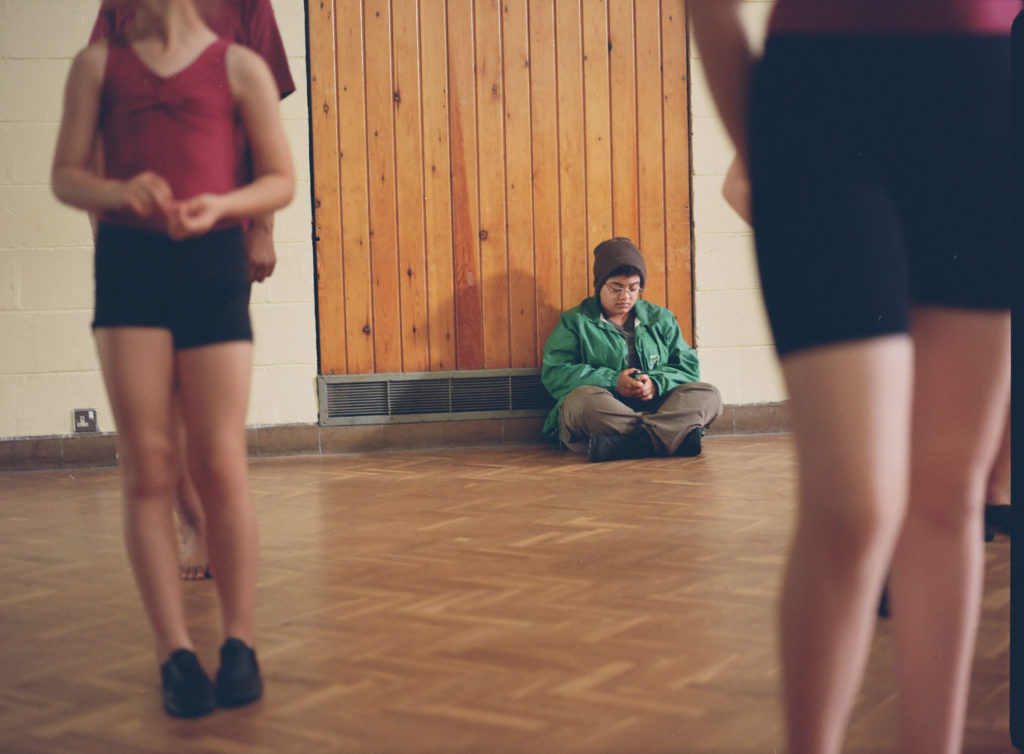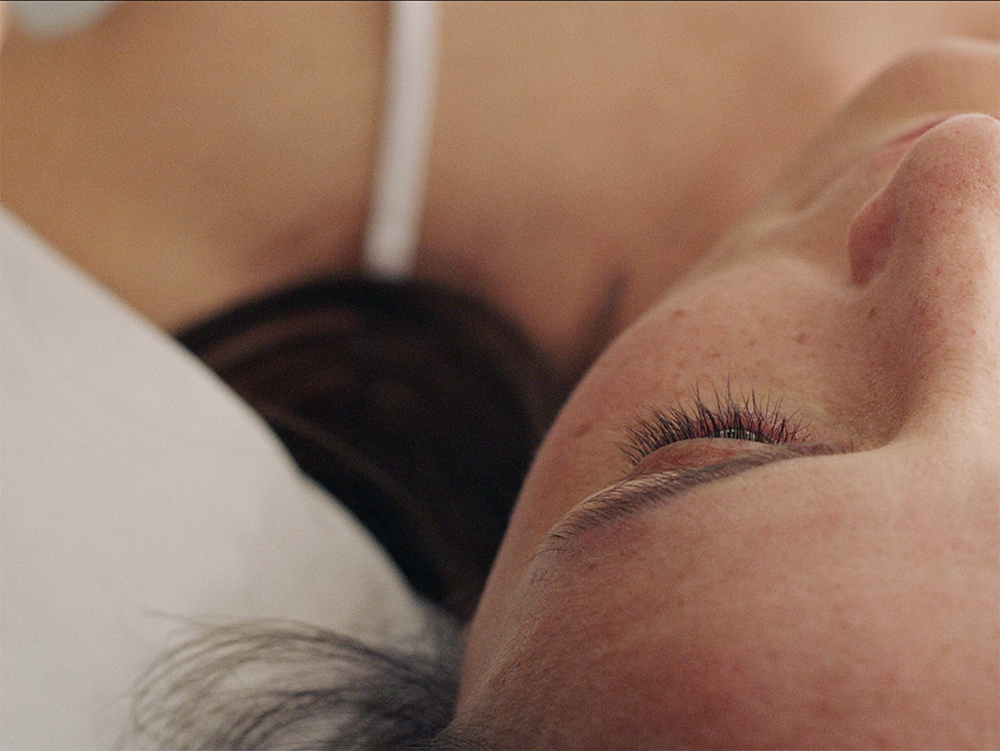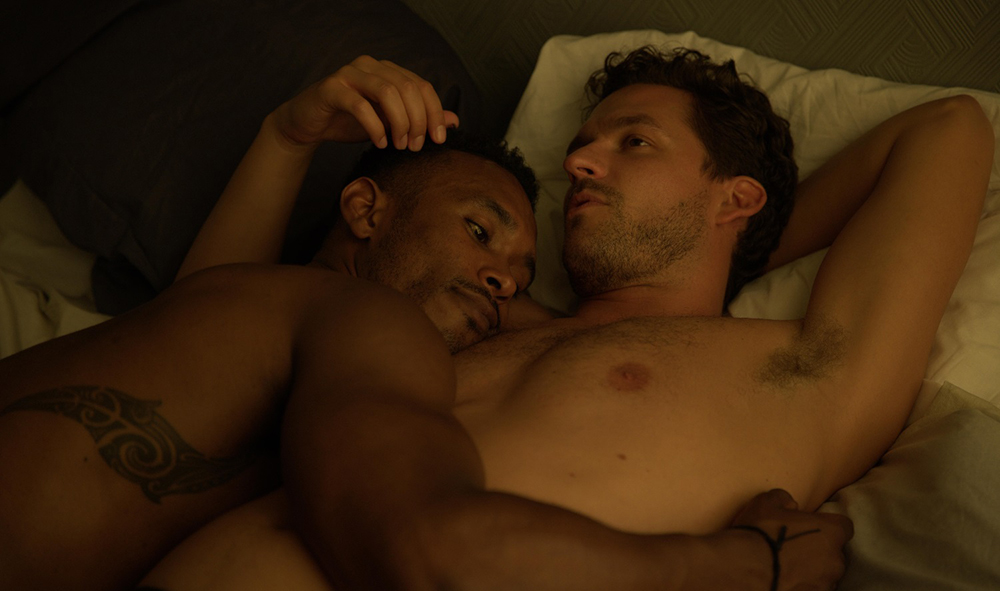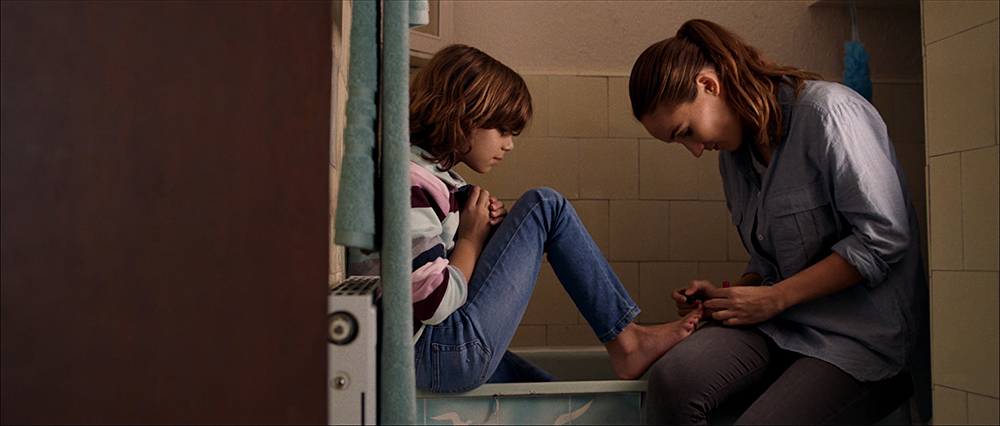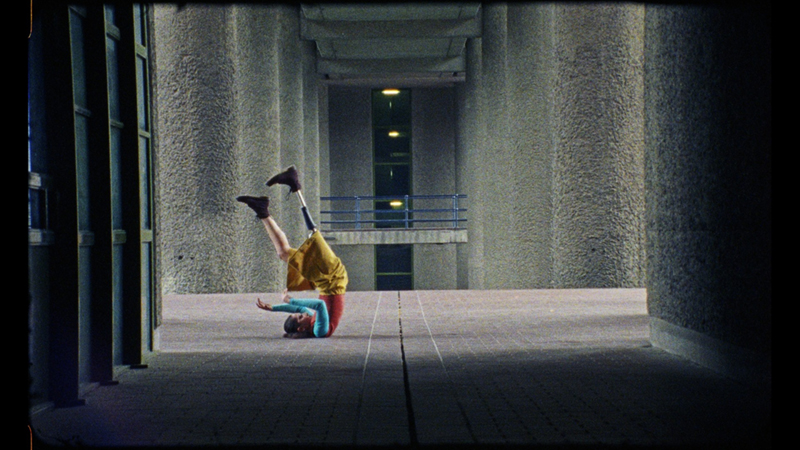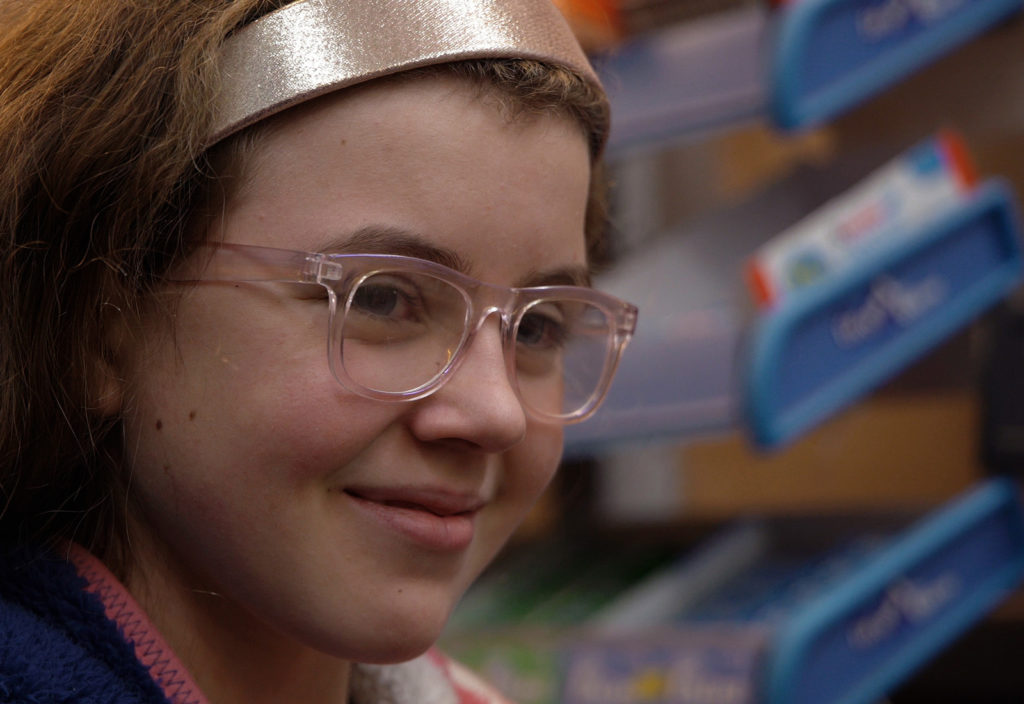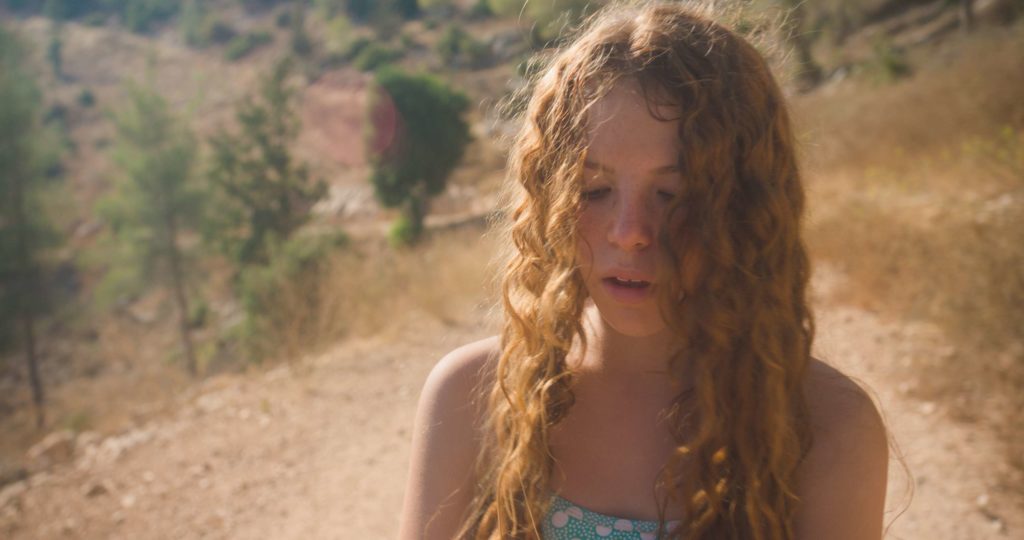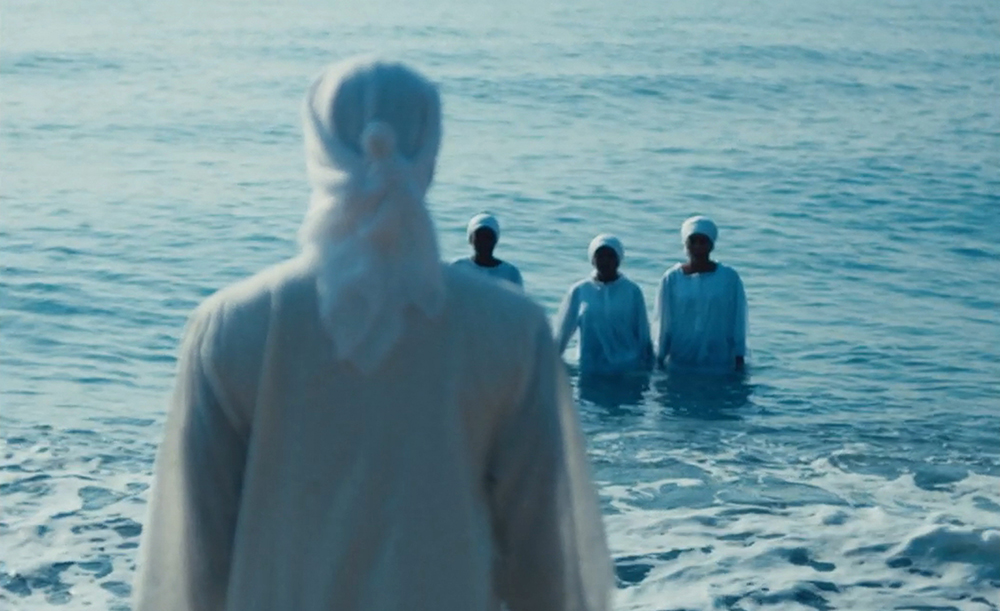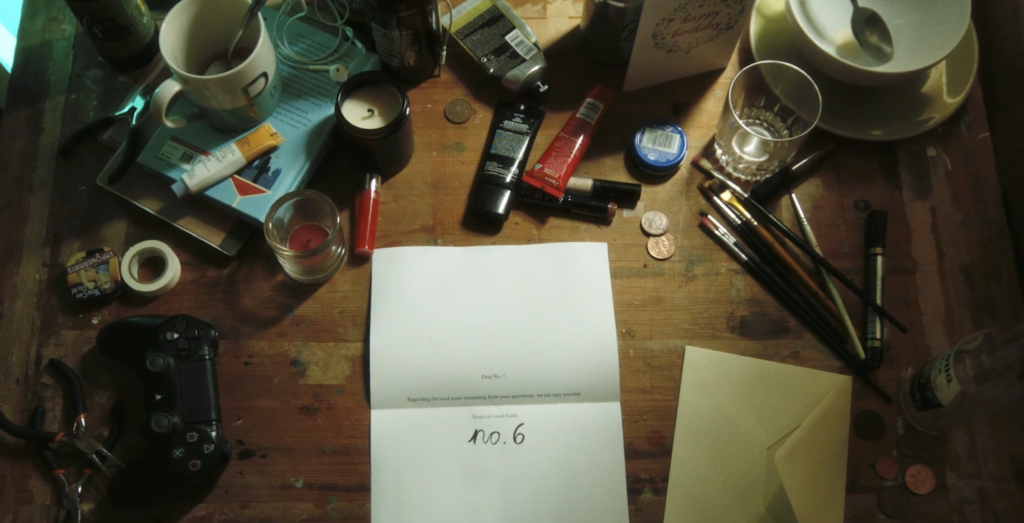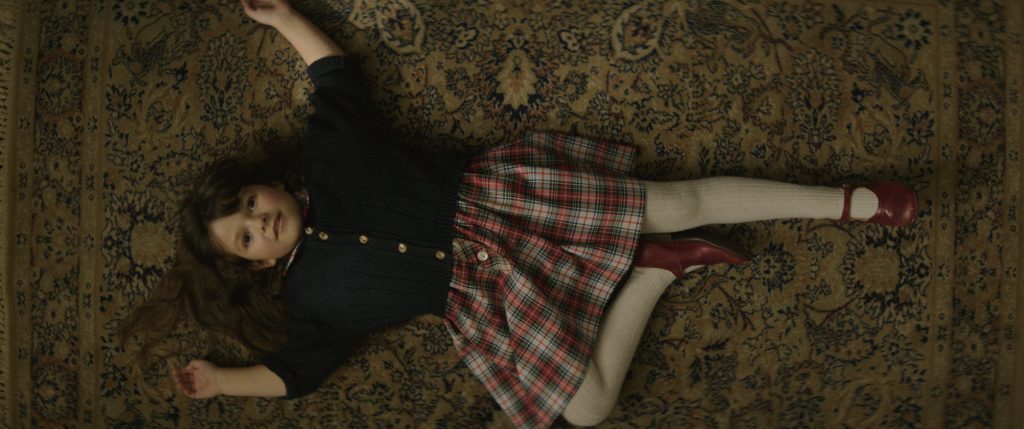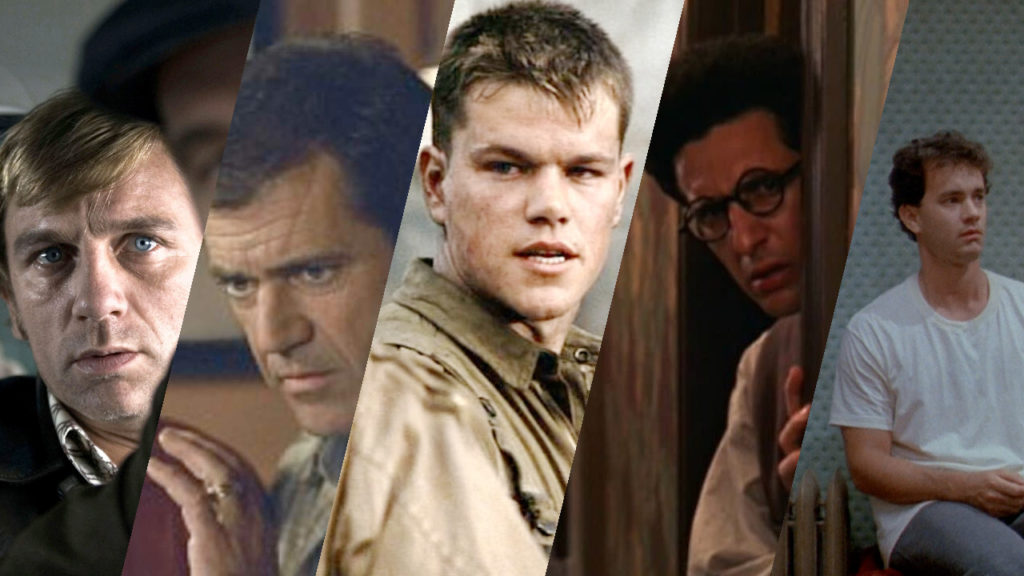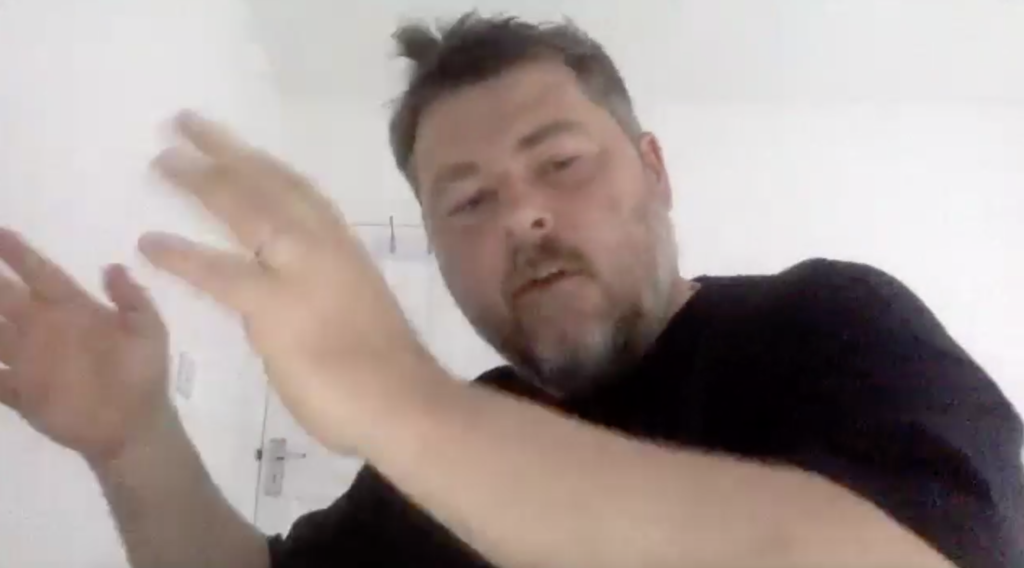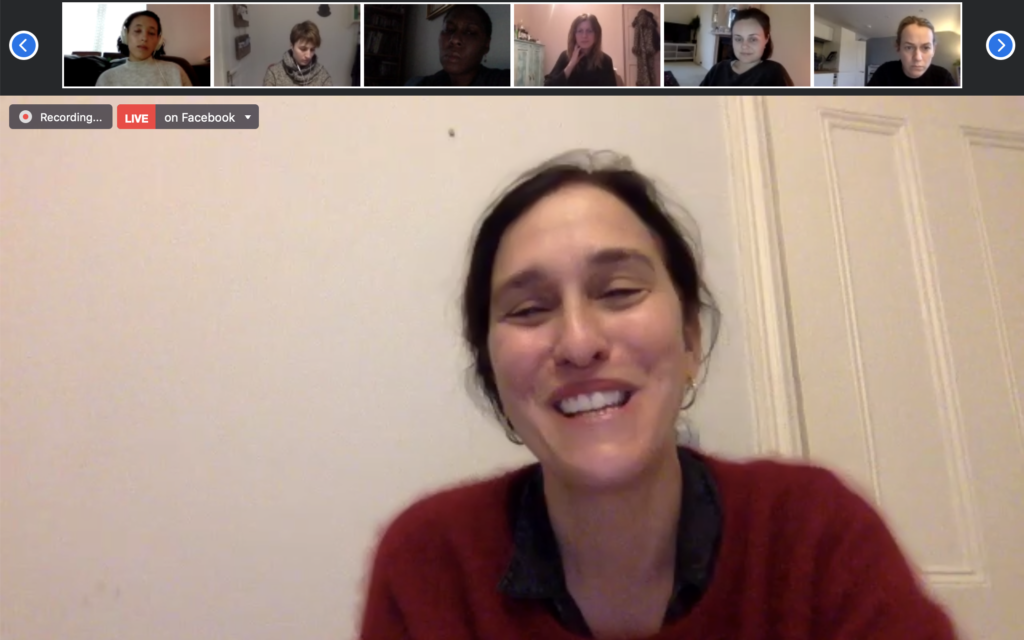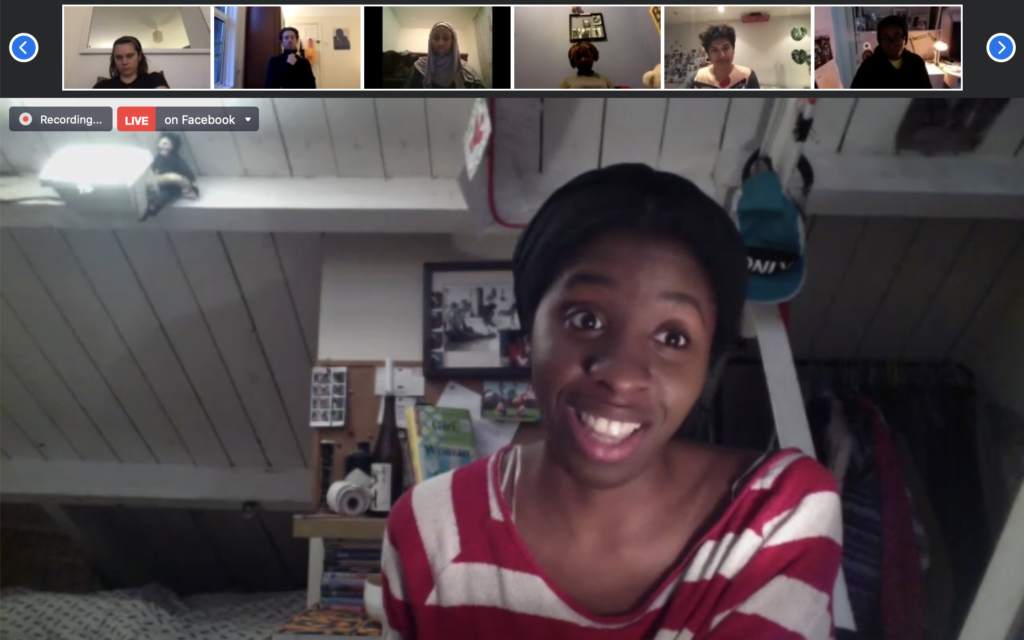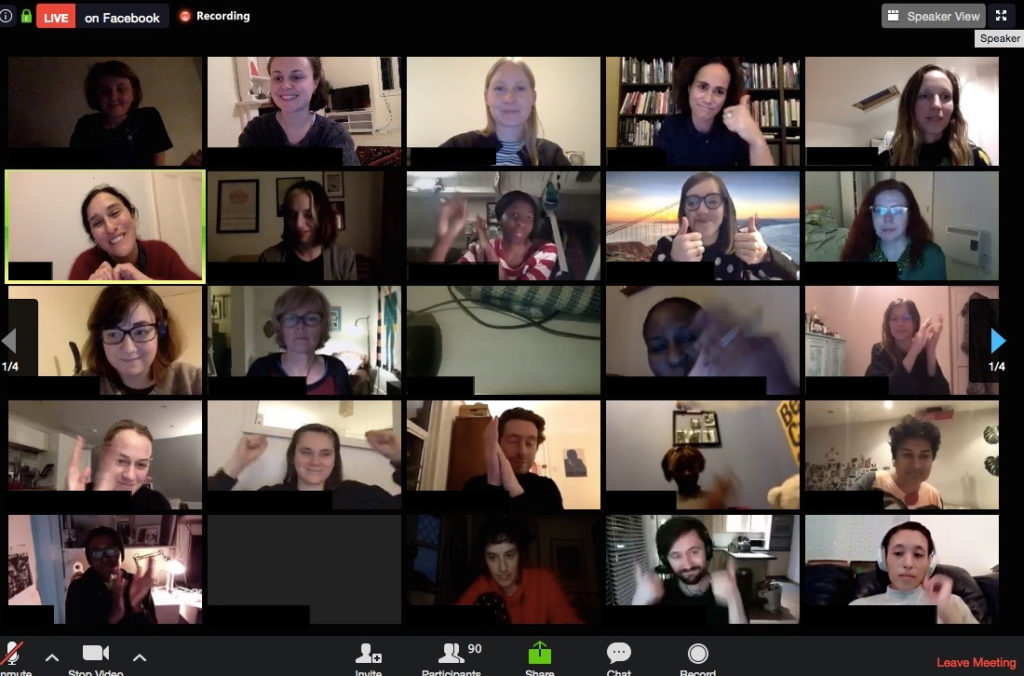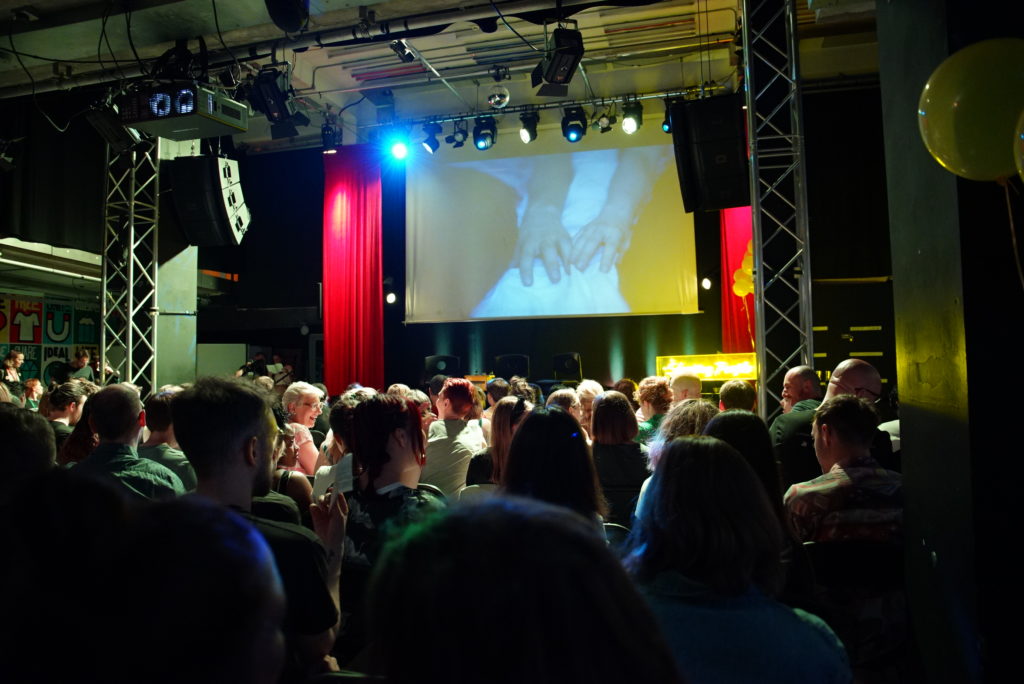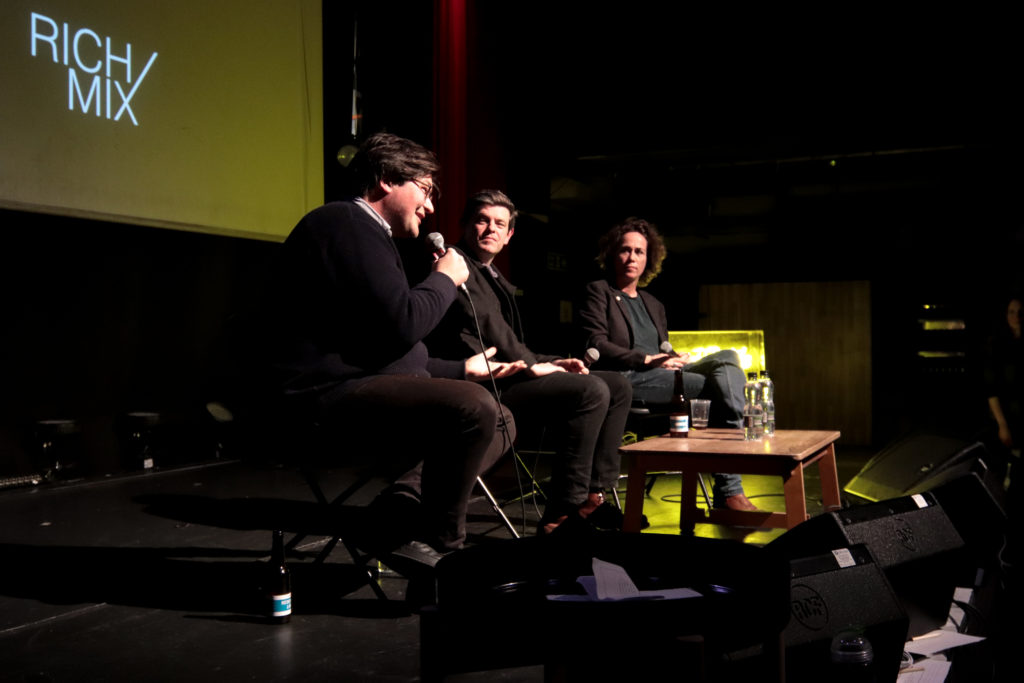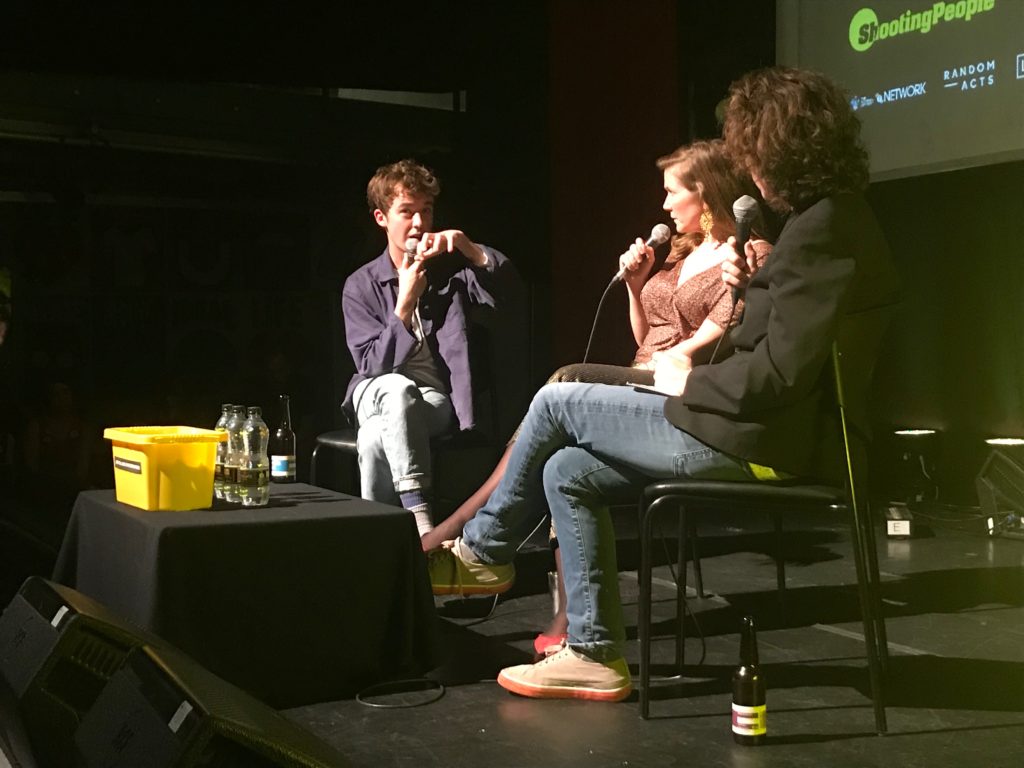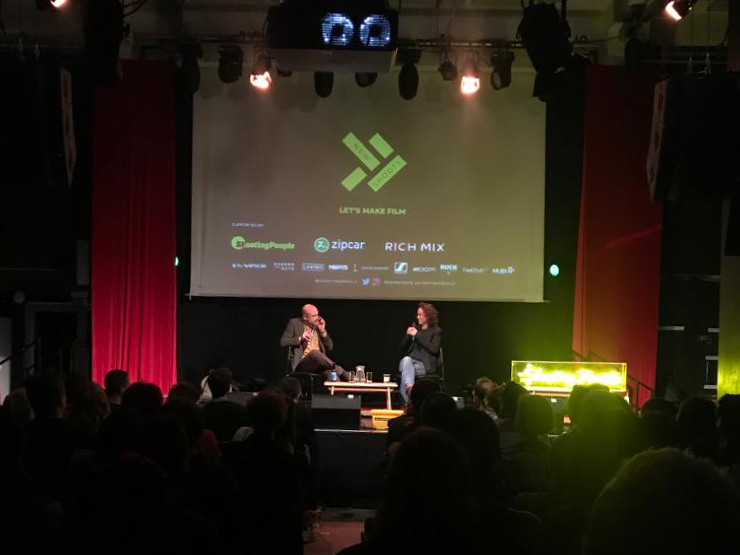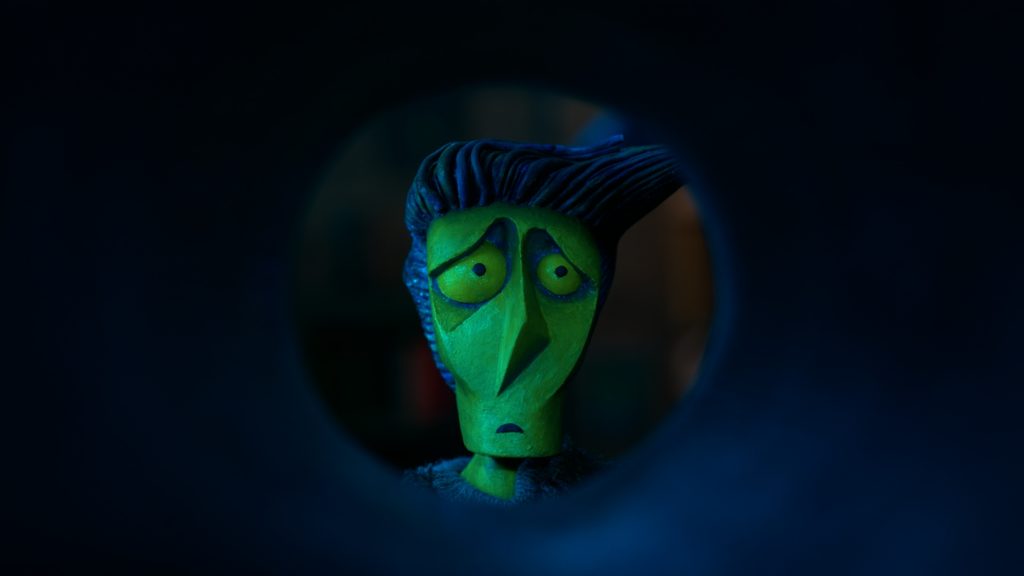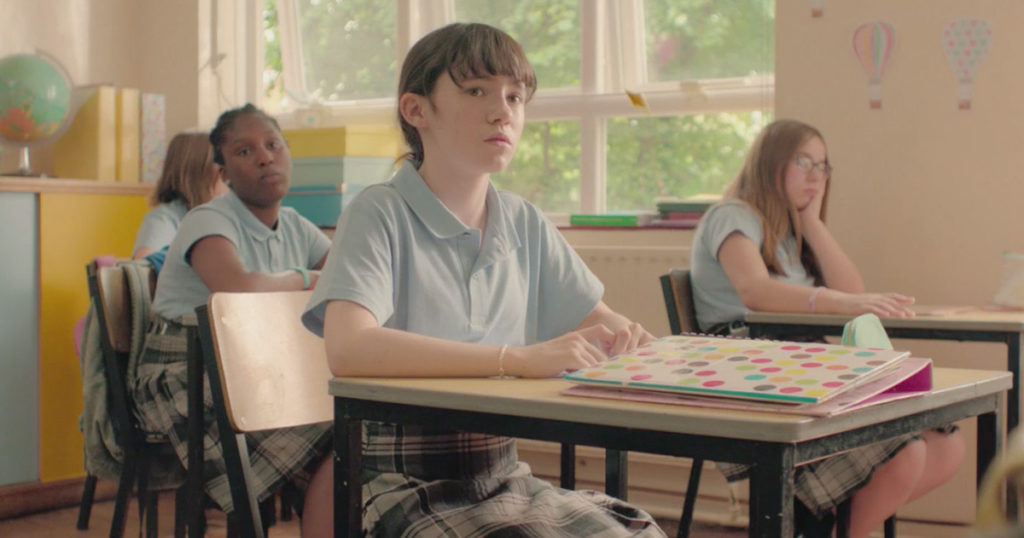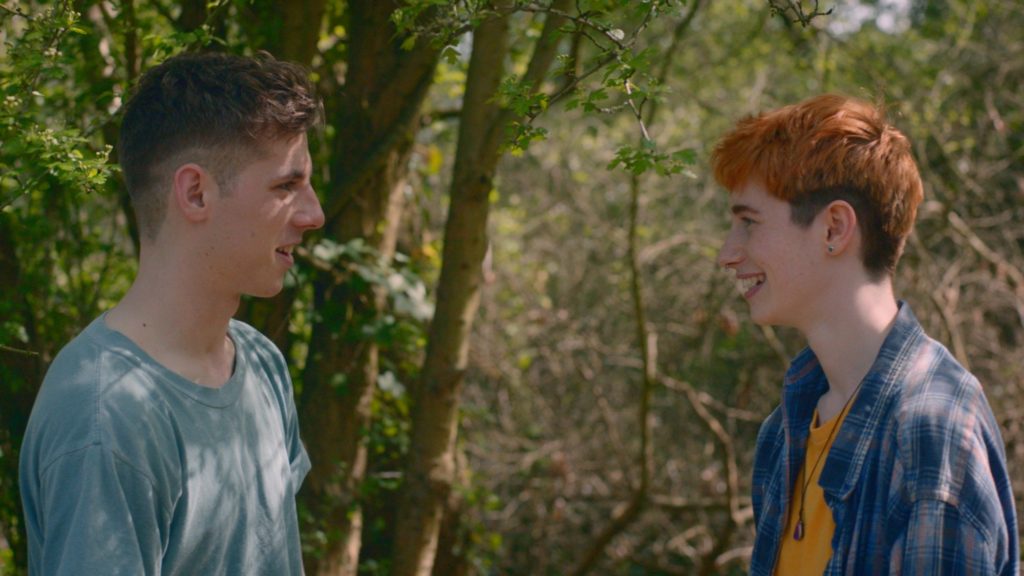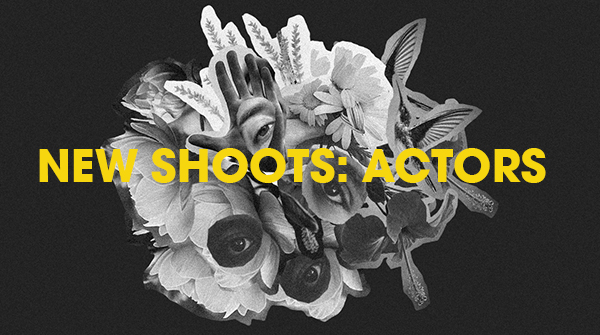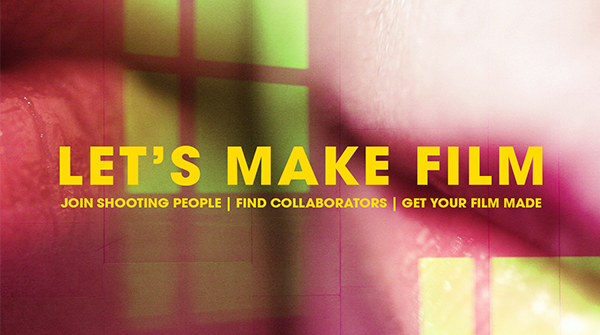NEW SHOOTS: A MASTERCLASS IN FESTIVAL STRATEGY
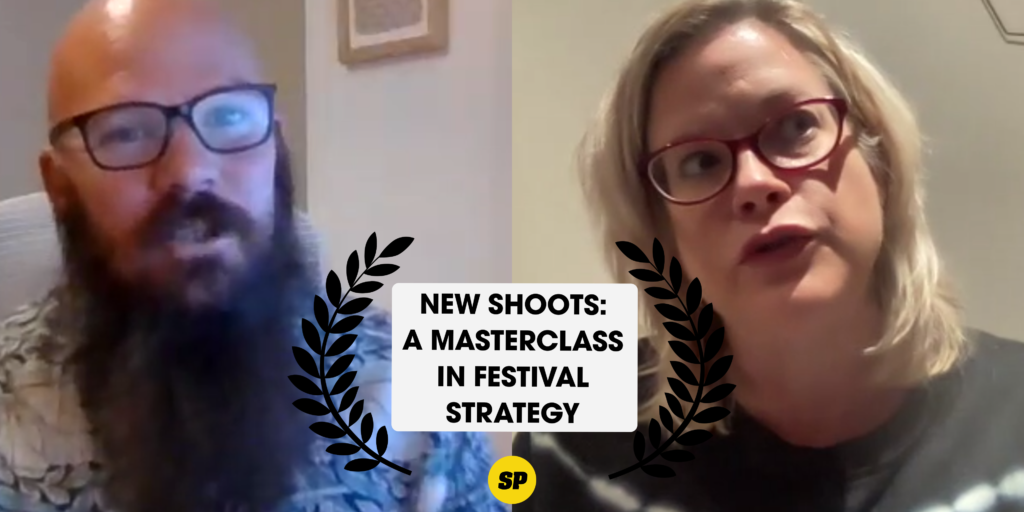
Following the success of our previous New Shoots event where we covered indie horror filmmaking with breakout directors Jennifer Sheridan (Rose: A Love Story) and Prano Bailey-Bond (Censor) back in July. Our latest New Shoots went down a treat as we delved into film festival strategy with two of the industry’s best – Rich Warren (Director of Encounters Short Film Festival) and Wendy Mitchell (Film Festival Consultant and journalist).
If you didn’t manage to watch the full Q+A you can watch the recorded version here – For now though, here are just a few of the golden nuggets of information Rich and Wendy shared at the event.
- FILM FESTIVALS ARE INTEGRAL TO YOUR FILM’S SUCCESS
If anyone knows about the importance of film festivals, it’s Wendy, her entire career has largely been built around advising festivals on how to best approach them. In her own words, for filmmakers, “They are such crucial places of support, they’re launching paths and ecosystems for filmmakers to get their work, seen to meet other filmmakers, to meet the industry, to meet an audience.”
“Every festival out there wants to find something in the open submission file which rocks their world, which they can champion…. It’s not just about showing the new Brad Pitt film, it’s about discovering new filmmakers: you haven’t met them at a party, they just love the film. If you’ve made a great film, it will be seen.”
- RESEARCH WHICH FESTIVAL IS RIGHT FOR YOUR FILM.
It’s essential to research a film festival and the films that they show before submitting. If you have a horror film for instance, there are certain film festivals that solely cater for that. It’s also important to get opinions on your film from others – but not solely your friends. The SP community is a great resource to ask for honest feedback on your film and advice on where to submit to.
Rich highlights the importance of knowing what you want out of your festival, explaining you want to have “a real clear vision of what opportunity you want to be created. Are you going there looking for a new producer or are you going out looking for the commissioner? Are you going out there to create a reputation? All of that will help dictate what type of festivals you want to go to. It’s looking at those specific things and being very targeted and knowing what you want to get out of the festival run.”
It’s important to do research early, as the more you learn the more your perspective on the direction of your film will change, similarly, throughout production it’s a natural part of the process to change your vision. Wendy iterates “You will have different goals at different stages…Your goals at the beginning won’t be the same as your goals at the end.”
As previously mentioned, collaboration is key to your success, Wendy emphasises “Try to get some honest opinions, not just from your mates. Check out similar films and see what festivals those films went to… If you’ve got an experimental film, maybe Edinburgh’s not as right as Oberhausen would be. I would get some honest opinions from people who know about these things. Maybe that’s sharing it with sales companies and showing other filmmaker friends.”
Ultimately, Rich concluded “Do your research on the festivals. The information is pretty much all there online and it’ll save you hour’s worth of research as well.”
- KNOW WHEN AND WHERE YOU WANT TO SUBMIT.
When you’re making an independent film, the last thing on your mind is probably your release time – so often it’s about focusing on getting the film MADE. When queried about timing though, Wendy gave some extremely helpful food for thought… “(Consider) When is your film actually going to be ready? If you’ve got a very, very rough cut and you’re going to be half animated and you’ve got no animation… don’t rush to submit to Sundance…Do not rush. You know, if your film isn’t ready for Sundance try Berlinale, If your film isn’t ready for Edinburgh, wait till LFF. There’s always another festival. There are 10s of thousands of great film festivals.”
Often, film festivals are open for submissions almost all year, with varying deadlines – typically having a lower submission fee the earlier you submit. Wendy pointed out “It’s better to submit the week submissions open rather than submitting the day when they close.” Drawing from her own experience she elaborates “I think we had 300 films submitted to San Sebastian on the day. Those programmers are watching 5 films a day. Yeah, the program is already alittle bit determined. Yes. There are always slots – it’s better to get your female led horror fantasy to be the first one they see and they invite it, rather than it be the last one. And they say, ‘oh,we’ve already got too many of those.’”
Moreover, both Wendy and Rich agreed that it is extremely important to submit your film at the minimum of a close to finish stage, as Wendy iterates “Programmers are very adept at looking at work that’s unfinished… but DO put your best foot forward.I would never recommend submitting something that’s not picture locked…you do get that one shot to show the programmer at that festival.”
Ultimately, Rich concludes with an important piece of advice – “What is increasingly with festivals is that we are watching submissions, absolutely blind. We don’t even know who the director is because of unconscious bias…we want to just go into the film and see what the storytelling is.”
Even if you’re not a big name yet – it’s important to remember that your talent is what matters – not how much you’ve done before.
- PLAN OUT YOUR BUDGET FROM THE START.
Especially when working on shorts, the budget is often tight and it is extremely tricky to not focus on spending it all on making the production as best as possible. It’s important to think smart and budget for distribution and marketing of the film – including film festivals.
First of all, regarding fees Wendy comments “Don’t be scared. People want to show your films… Have a line in your budget for festival submission fees. How much that is depends on your ambitions. I’d put in at least a few hundred pounds, even for shorts.”
Rich also offered some useful advice on rethinking the mentality towards submission fees – “Rather than looking at it as a submission fee, look at it as a viewing fee.” It’s important to remember that behind the scenes, a huge amount of time (and money) goes into reviewing festival submission.
- KNOW WHEN TO ASK FOR WAIVERS, BUT ALSO – KNOW WHEN TO WATCH OUT FOR SCAMS.
If your film has been accepted into a highly regarded film festival, then it might be worth asking for a fee waiver from other festivals that you want to submit to. The worst that they can say is no and you can still pay to submit. As Wendy points out: “There is a snowball effect when you start getting into film festivals, certainly short film festivals. If you get into one or two, then you start getting invited into others. So if you’re really targeted about those first couple of festivals that you want to go to, then those invites will come in.’’
Wendy also makes a great point: ‘If anybody ever asks you personally to submit to their festival, they should be waiving the fee.’
Always be cautious of fake film festivals who will take your submission fee but don’t actually exist. As Wendy advises: “Google them. Did anyone blog from that festival last year? Did anyone say they had a great time in the audience? Did they get any press? Look at who screened last year and drop them a line.”
Rich went on to say: “My best advice is always to look for photos of the festival… you want to see a busy room with their logos and a banner in the background. Then there’s a good chance it’s a legit festival….Look at the number of awards: f you see they’ve got an award for [every department] the chances are, it’s not a legit short film festival”
- HOW TO ATTEND FILM FESTIVALS, FUNDING TO HELP YOU GET THERE & SCREENING FEES
There are different funds that can assist you with different aspects of your film, from production to distribution. All SP members can access our funding database – it’s an amazing up-to-date resource with the latest funding opportunities all in one convenient hub.
If your film is selected for a film festival, there are funding opportunities which could help pay for you to go attend. Wendy suggests the British Council’s short film travel grant which will pay for travel costs related to attending film festivals.
If you are selected for a film festival, it’s always worth asking whether they can offer accreditation or accommodation. Some festivals will have the budget to fly you in for a Q&A, whilst other festivals may have a more DIY approach, such as connecting filmmakers with couch surfing options. At the very least a festival should provide you with a free ticket to your own screening.
With a feature film, some festivals may also offer a screening fee. Wendy explains “With features, the economics vary so wildly, a lot of festivals might pay you a screening fee to show your film. That might be 500 quid, but every little bit can help add up. If you have a sales company, they’re going to take that 500 quid because they’re doing that work to submit for you…Funnily enough, the richest festivals, Cannes, Berlin, are so prestigious. They think they don’t have to pay you to screen your film. But, you get the prestige.”
- ALWAYS HAVE A PLAN B.
Being brutally honest, not every film festival is going to want your film and it’s important to always have a Plan B, Plan C and then ideas of where to go from there if all else fails.
As Rich explains, film festivals are perpetually viewing the best of the best – “I always consider us to be in a really privileged position because we get to see the wide spectrum of filmmaking, we get to see it as an entirety, everything that’s being made. So we’re in a really present prestigious position and we get to see what’s in the zeitgeists.”
There are such a multitude of reasons why your film may not be selected as Wendy recalls “I have seen some of the best films ever made get rejected for various reasons from various festivals. There was one British film a few years ago that was going to be in Cannes Directors Fortnight and they told us the night before the selection, actually, it didn’t make the final cut. They put one other film ahead of it.”
Furthermore she explains that at San Sebastian “this year, we rejected a very good, feminist story, because they already had about three others in the section. So it didn’t mean the film was bad at all. It just meant it was too similar to things we had already programmed.”
Ultimately, when doing your research, don’t centre your plan around one festival being the make or break, numerous festivals will share similar themes, styles and genres in common, find the ones which correlate and refine what you’re looking for.
- FILM FESTIVALS ARE A GREAT OPPORTUNITY TO NOT ONLY SHARE YOUR FILM, BUT TO DEVELOP YOUR IN-PERSON NETWORK.
One of the biggest pieces of feedback we’ve heard from our SP community is that film festivals seem too intimidating, there’s no denying it, but as Wendy acknowledged film festivals can be an amazing environment to learn and grow as a filmmaker, “it can be quite a tricky landscape… but I just think it’s crucial: filmmaking can be a lonely business and festivals make that not lonely.”
This is especially true for shorts, as Rich chimed in film festivals are all “about opportunity creation… a short film is often about thinking about where you’re going to go, what you want to do next, where you want to go next. Film festivals are not just about being an avid shop window, but it’s about being around your peers and finding out what the next opportunity is, and where that next opportunity is.”
If you’re uncertain about your direction as a filmmaker, what you’re doing next, where you even want the film you’re screening to go, Rich explains “it’s those opportunities that kind of come from those serendipitous meetings at festivals and, and the chance encounters. That’s really where the wave of festivals come into their own.”
Regarding COVID, it has undeniably been difficult for festivals, as Rich explains “The short film festival sector does feel slightly less vibrant, I think. I think that’s just due to budgets more than anything else. We’re very reliant on venues and I think venues are still very cautious about getting people together.”
Interestingly, Rich brought up that the rumours surrounding a drop in film submissions proved false. He elaborates “what’s interesting is we were all predicting a drop-off from the actual filmmakers. We all were predicting a drop-off of films from this year, and I’m not actually hearing that from any festival… If anything, the numbers are still continuing to rise.”
Wendy elaborates that the film festival scene “is still flourishing. It’s not as healthy as it was when we could be around the world. If they are running in person, it’s usually a smaller program… but festivals have not died.”
She goes on to praise the resilience of festivals and commend that there are aspects which are great about hybridisation, “Sundance back in January was online and it was amazing. I haven’t been able to go to Sundance in 15 years and suddenly I could do that from my living room.”
Ultimately she concludes “I think hopefully…by early 2022, the industry is going to be back, going to festivals, hopefully a bit like normal. I think that will change over the next year, you are going to see more (hybrid festivals).”
- GETTING YOUR FILM INTO A FESTIVAL IS A SUCCESS WORTH CELEBRATING.
To conclude, Wendy iterated “There is a snowball effect when you start getting into film festivals, certainly short film festivals. If you get into one or two, then you start getting invited into others. So if you’re really targeted about those first couple of festivals that you want to go to, then those invites will come in…. If anybody ever asks you personally to submit to their festival, they should be waiving the fee.’
Never disregard your own successes, the film industry can at points be demoralising, but the most important take to have, is that the community is everything. At SP, we always welcome and encourage you to share your journey, your successes and your downfalls with our community, whether that’s shouting out about your most recent production, or asking for advice, our forums are always open.
